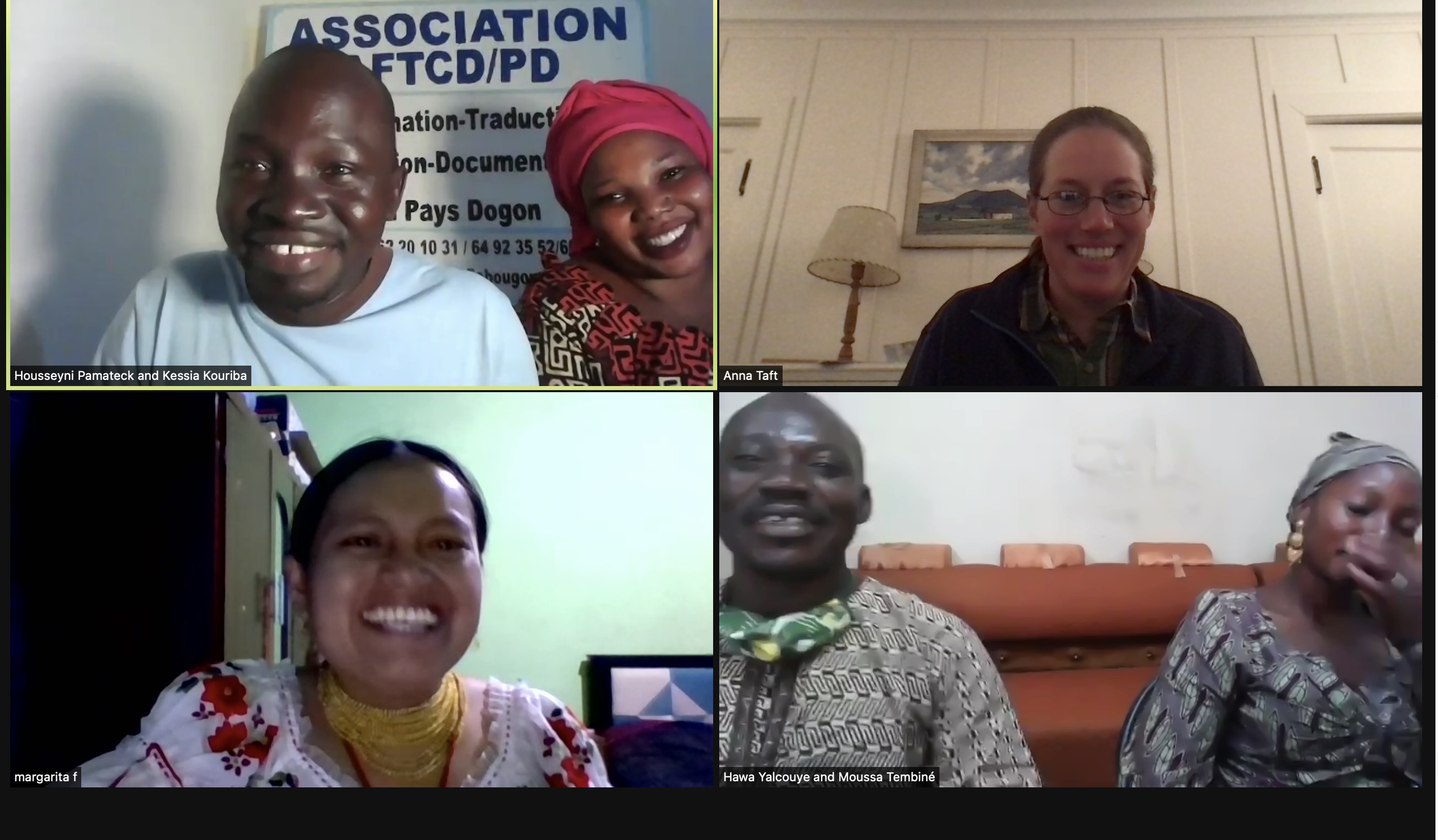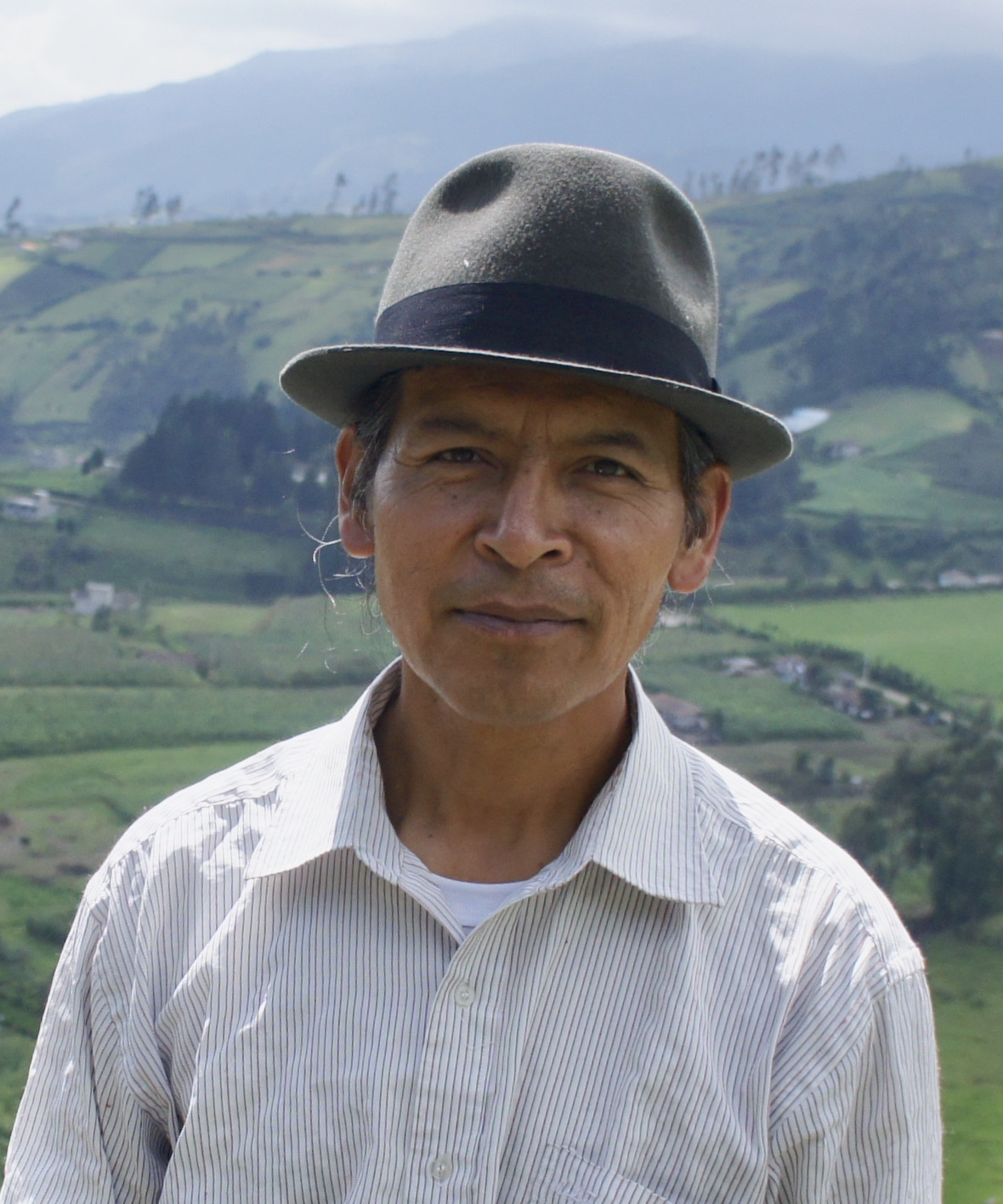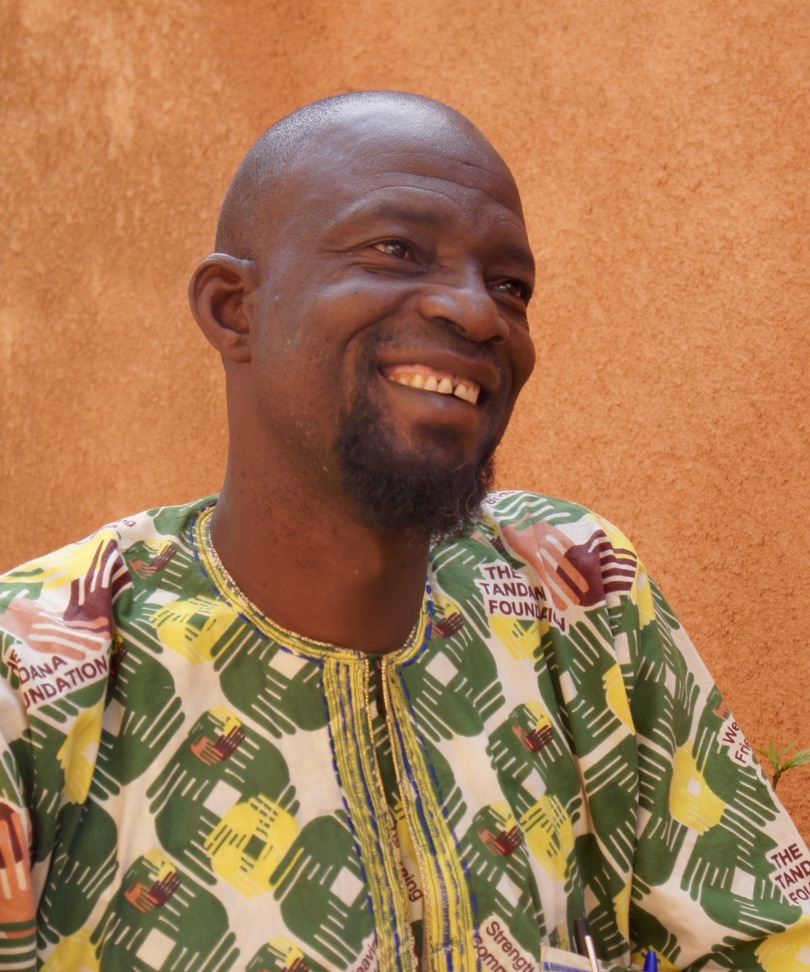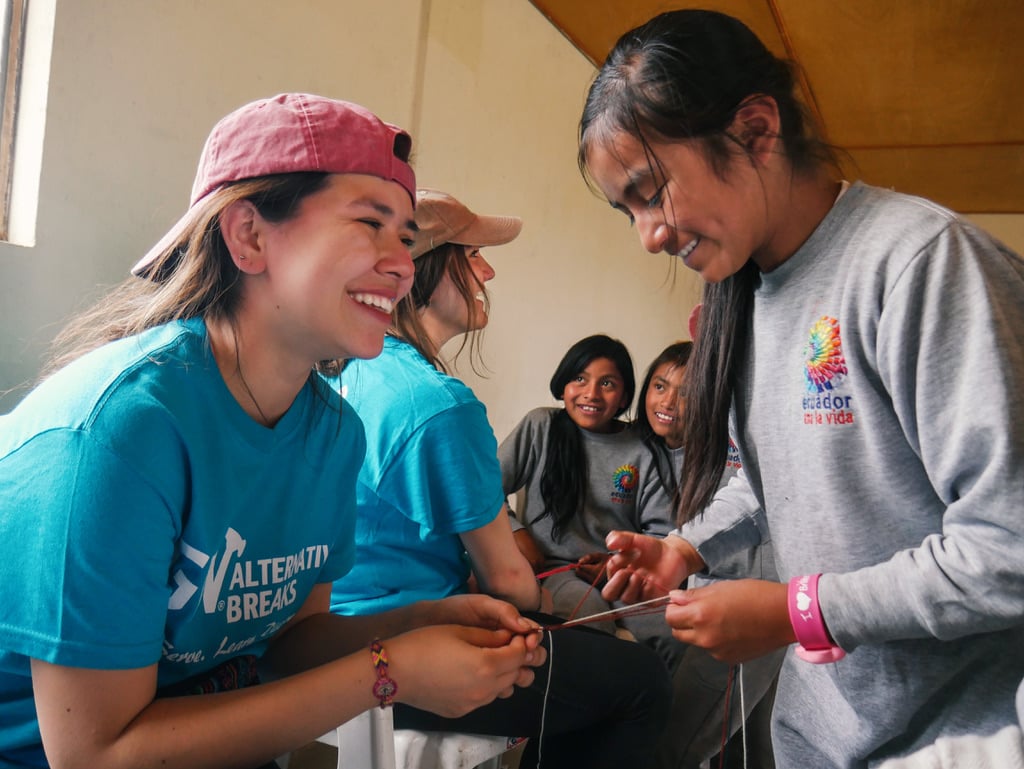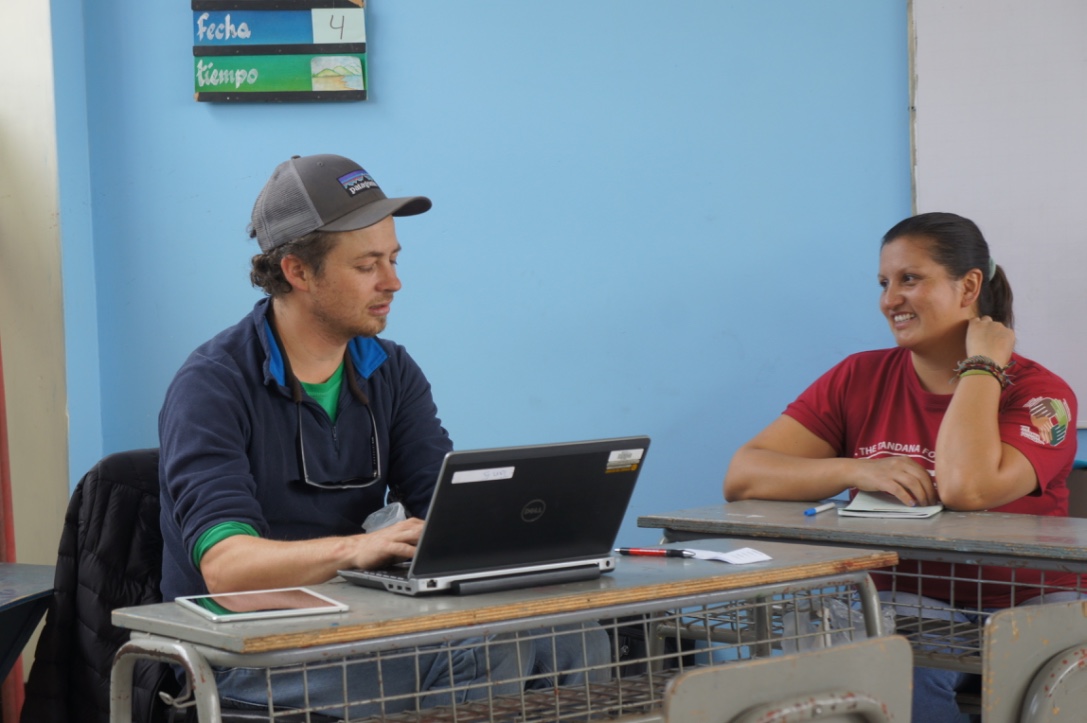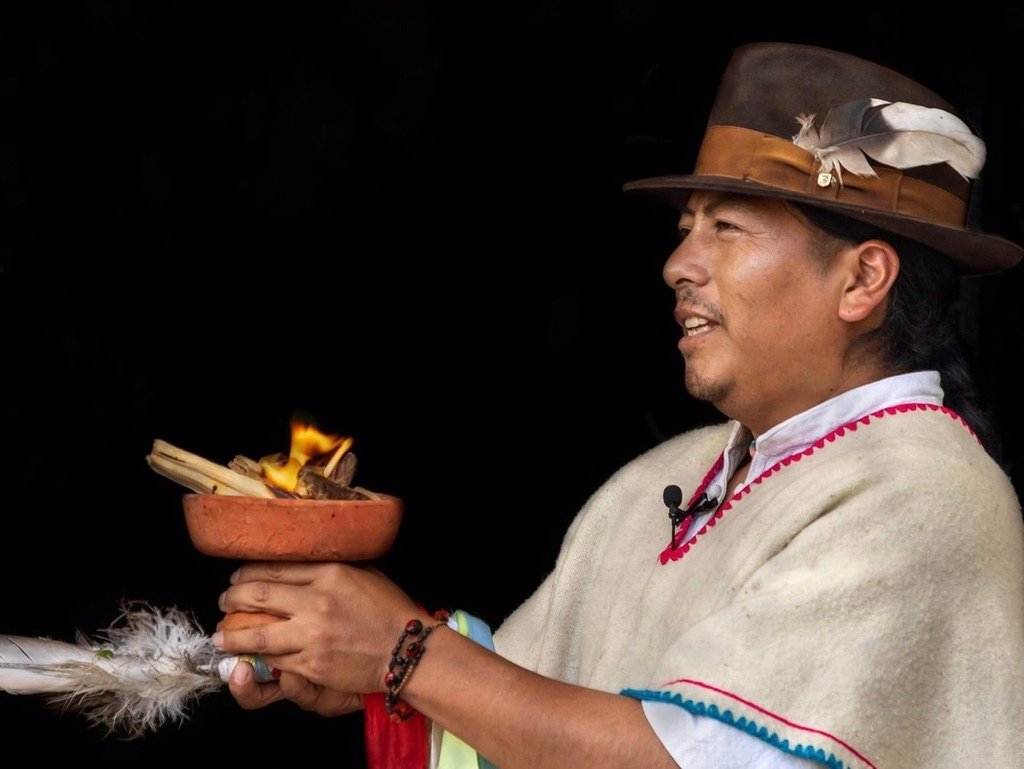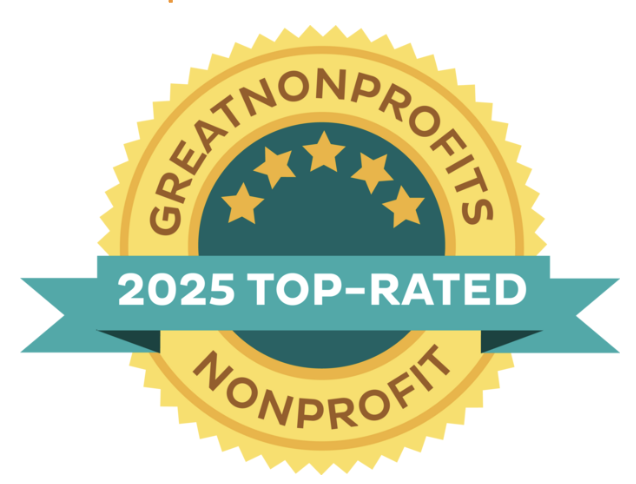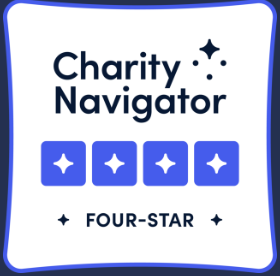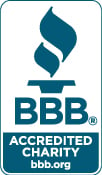
Remote Connection
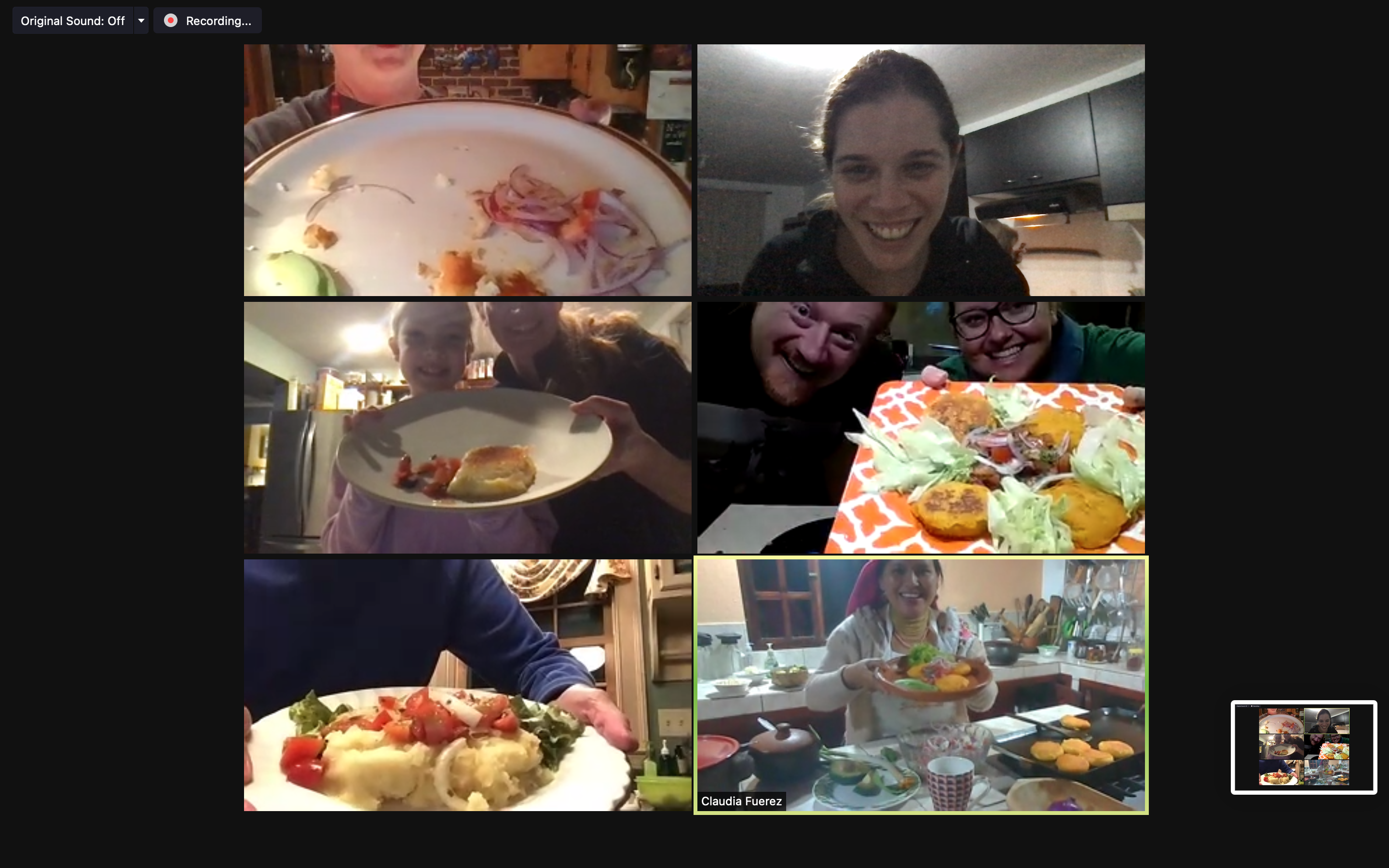

Even if you can’t travel, you and your students, club, or group can interact in multiple ways with Tandana friends from Ecuador and Mali, building global connection and awareness. Student exchanges can allow for mutual learning, while booking guest speakers shows that you value the knowledge and experience of community leaders from Mali and Ecuador. Cultural activities are fun and interactive ways to gain insight into Kichwa Otavalo culture, while virtual immersions can give you the next best thing to actually being there. Remote internships allow you to contribute to meaningful transnational work and to connect with team members in Ecuador. For individuals, we offer Virtual Ventures that you can sign up for on your own or with friends.
The Tandana Foundation offers interactive remote cultural activities that give a glimpse into everyday Kichwa life in Otavalo, Ecuador. Sign up individually when available or anytime as a group! For your group, you can choose a variety of sessions to participate in, each with a different educational and culturally relevant theme. Prices are listed below for groups of 12 or 16--contact us at info [at] tandanafoundation.org for pricing for other group sizes and to schedule your activities. All fees include an introduction, interpretation as necessary, and supplies for your whole group shipped to one address. For individuals, supplies are not included.
Activities:
Kichwa Otavalo Cooking Class
Claudia Fuerez, proprietor of Kawsaymi Cooking School, will teach this interactive cooking class in which your group will prepare Quinoa Tortillas and Salad in Otavalo Kichwa style. Group fee includes all of the ingredients shipped to one address (contact us if you prefer to provide your own ingredients). Claudia will guide you through the preparation process and also explain the traditional significance of quinoa. Afterward, enjoy the delicious meal you have made!
For a group of 12: $389.99
For a group of 16: $499.99

Kichwa Otavalo Dress
Margarita Fuerez, Tandana Foundation accountant, will explain the history and current fashions of Kichwa Otavalo dress, which is an important marker of indigenous identity. You will also learn about jewelry and embroidery and the intersection of their economic relevance with fashion. Fee includes a few supplies so that you can try a few small aspects of Otavalo dress yourself.
For a group of 12: $389.99
For a group of 16: $499.99
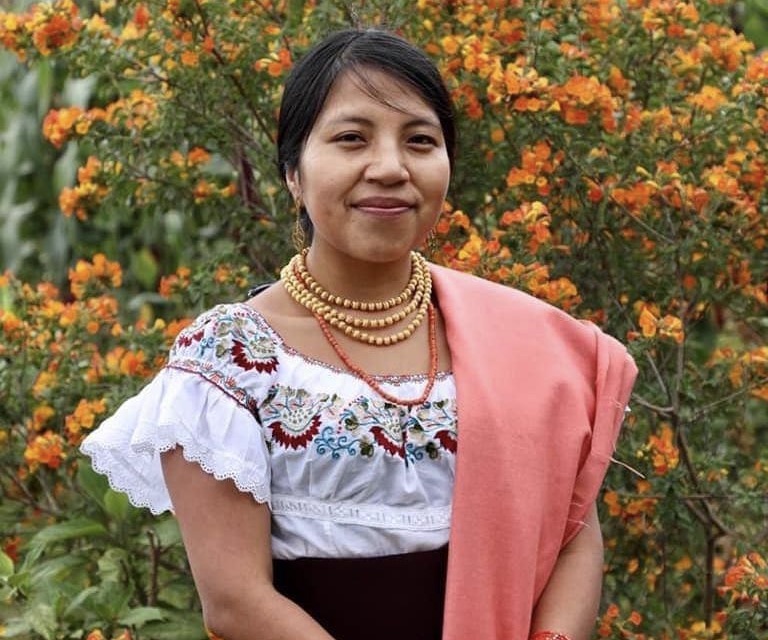
Garden and Medicinal Plants Tour
Alexandra Aguilar, leader of Pakarinka Learning Center, will guide you through the center's garden, describing the uses of medicinal plants and herbs. You will have a chance to make your own herbal teas, using several herbs we will send you, and sample their flavors. Later you can find some of these plants in your grocery store or a local garden and will know how to use them to support healing.
For a group of 12: $389.99
For a group of 16: $499.99
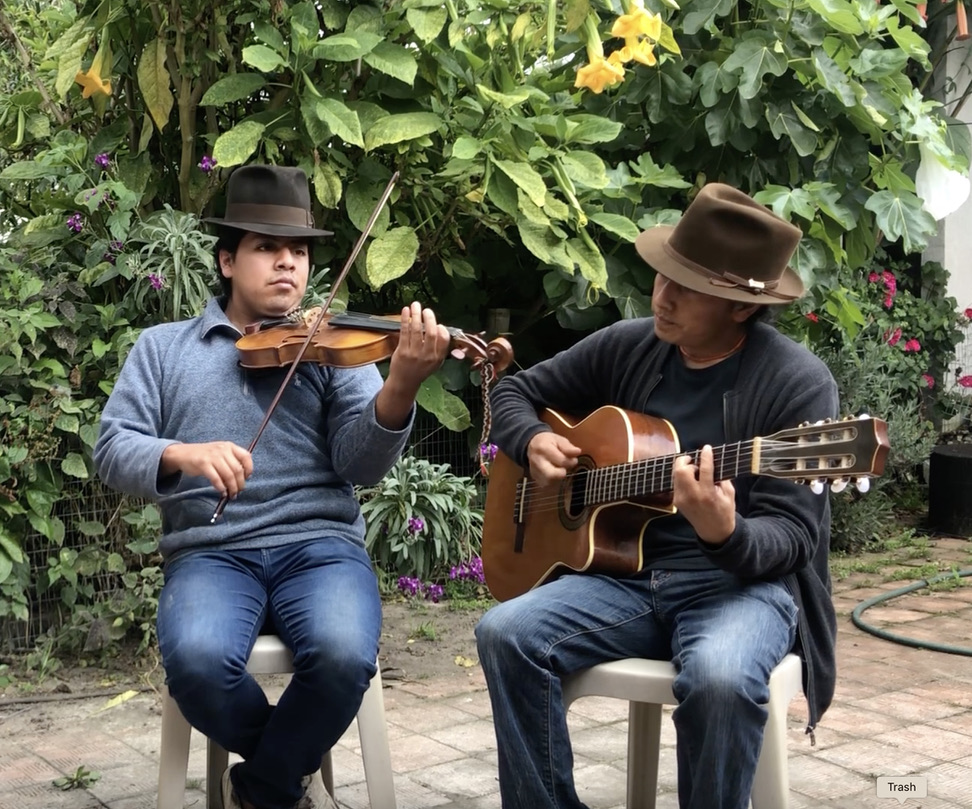
Andean Music
Experience a variety of Andean music with musicians from the Otavalo area. Learn about different genres, songs, and instruments used for entertainment and ceremonies. If you wish, you can make it more interactive by requesting to play along with the musicians while muted in your own home. This event is perfect for all music lovers!
For a group of 12: $389.99
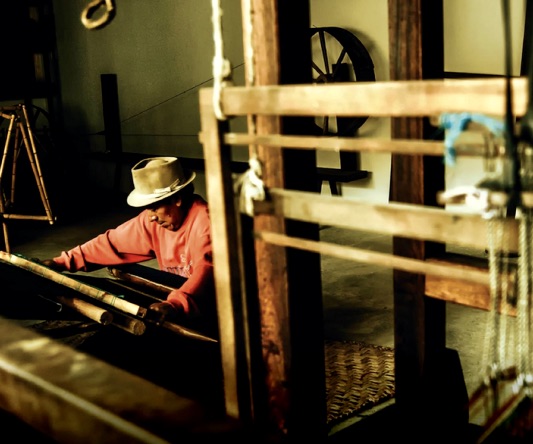
Otavalango Museum Tour
Take a virtual guided tour of the Otavalango Kichwa Living Culture Museum with curator Luzmila Zambrano. She will explain festivities, ceremonies, games, and the history of the factory where the museum is located.
For a group of 12: $299.99
For a group of 16: $399.99
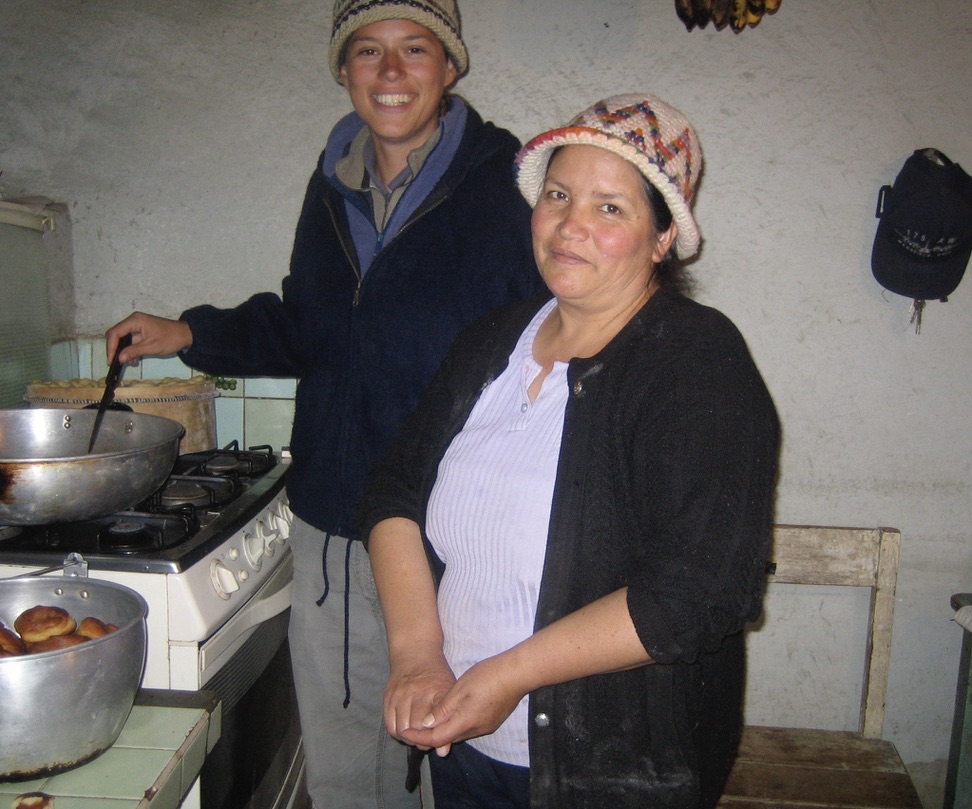
Colada Morada and Wawas de Pan - An Ecuadorian All Souls Day Tradition
In this session Cecilia Sierra will share her recipe for Colada Morada (purple drink), show how to make wawas de pan (bread babies), and talk about how Ecuadorians celebrate this holiday all over the country as well as some traditions specific to indigenous Kichwa culture. Ingredients for your group will be shipped to one address.
For a group of 12: $389.99
For a group of 16: $499.99
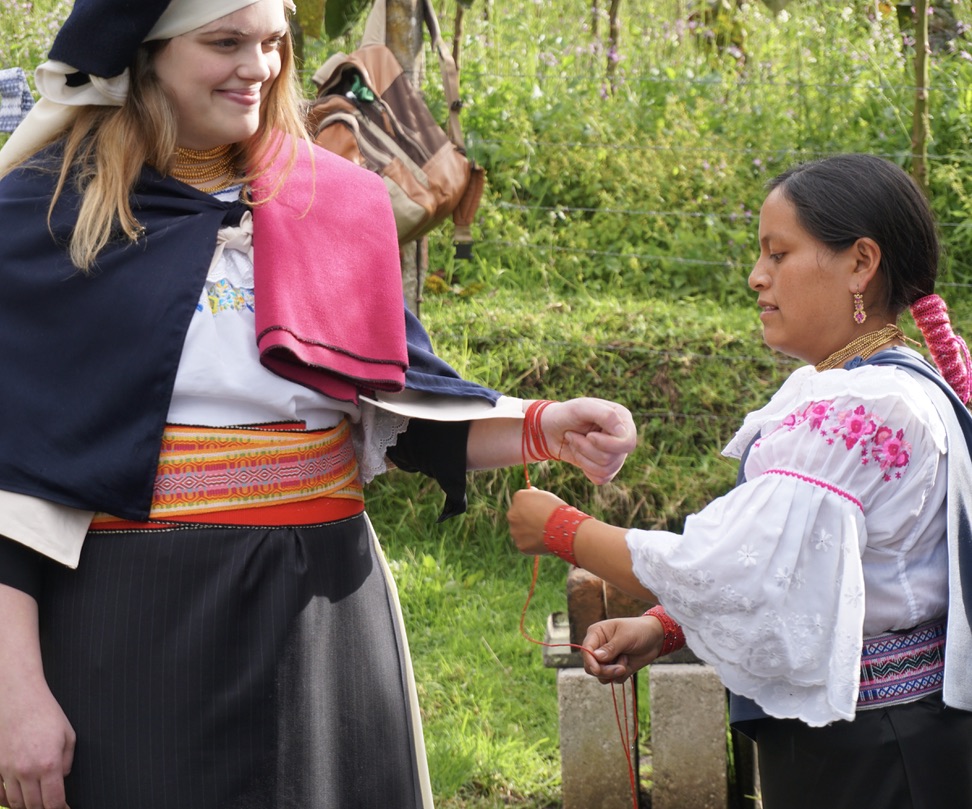
Make Your Own Makiwatanas - Traditional Kichwa Otavalo Bracelets
In this session, Margarita Fuerez, former Tandana Foundation scholarship recipient and current staff member, will teach participants how to make makiwatanas or manillas (traditional bracelets). She will also talk about the significance of the bracelets and how styles have changed over the years. Supplies will be provided for your group.
For a group of 12: $389.99
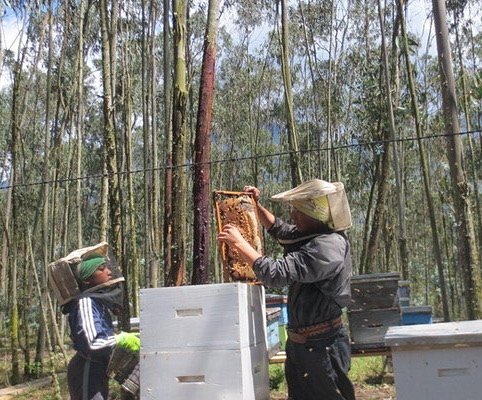
Beekeeping in the Ecuador Highlands
Learn about beekeeping in the Ecuador Highlands with experienced apiculturist Rumi Santillan. He will demonstrate how he works with his bee colonies and share how beekeeping went from being a hobby to becoming a family activity and local business.
For a group of 12: $299.99
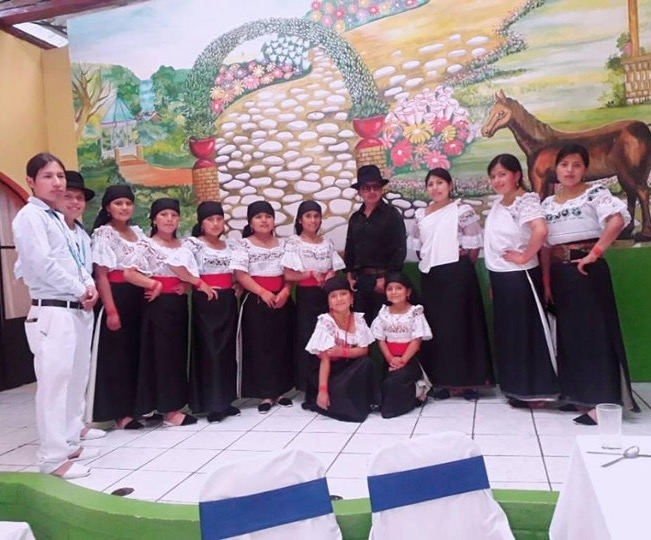
Kichwa Cotacachi Dance
Experience traditional dances of the Ecuador Highlands with Sumak Sisay, a youth dance group from the San Pedro de Cotacachi community. Learn about the meaning behind traditional dances done in the Andes, watch the group perform, and hear about how young people connect with their Kichwa culture through dance.
For a group of 12: $389.99
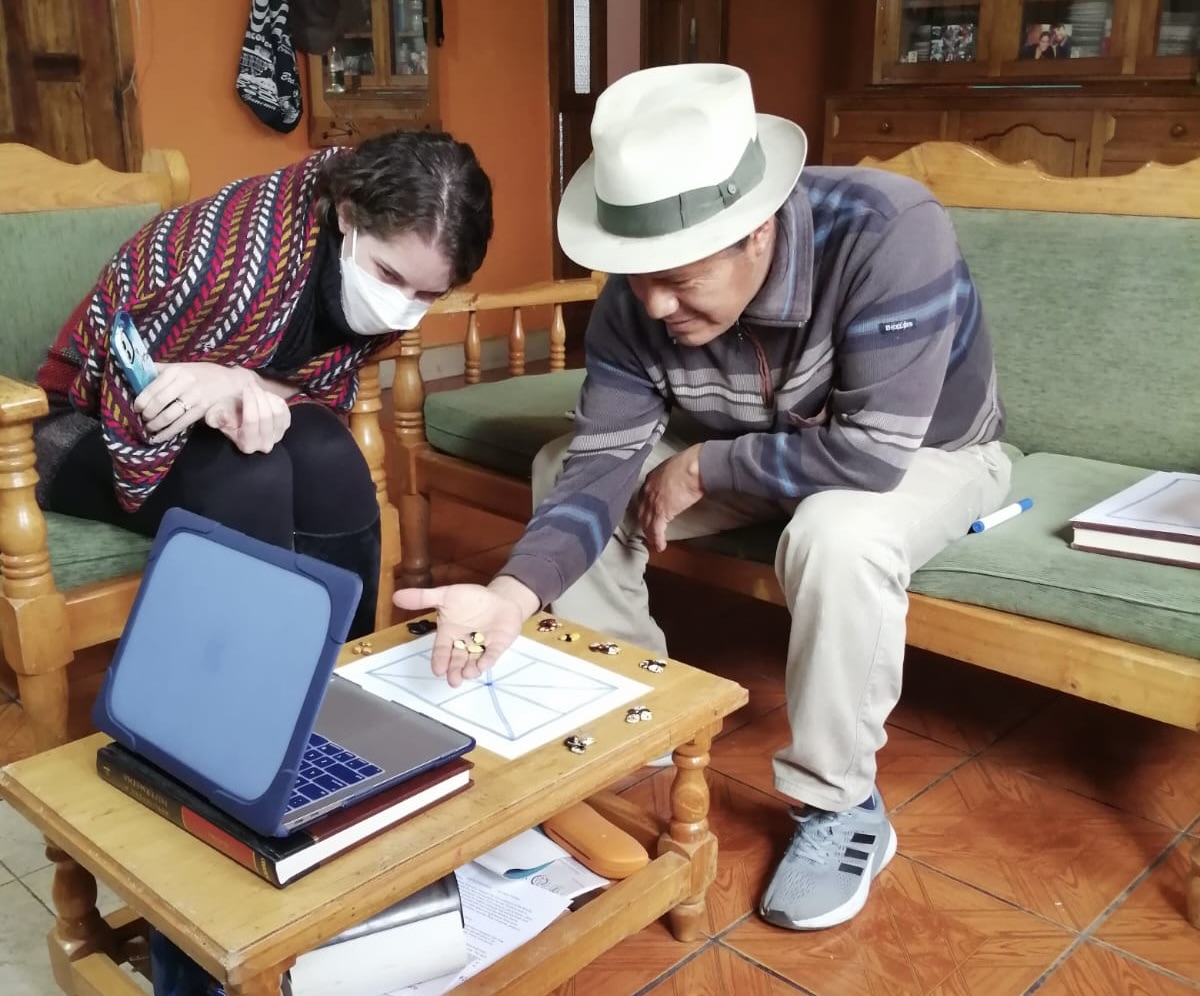
Kichwa Otavalo Games
Learn several games traditional to Kichwa Otavalo culture. You can choose to focus on calmer games such as Triki-Traka or more active games, depending on your preference. Learn about the history and significance of the games and have fun playing them. Supplies for your group will be mailed to one address.
For a group of 12: $389.99
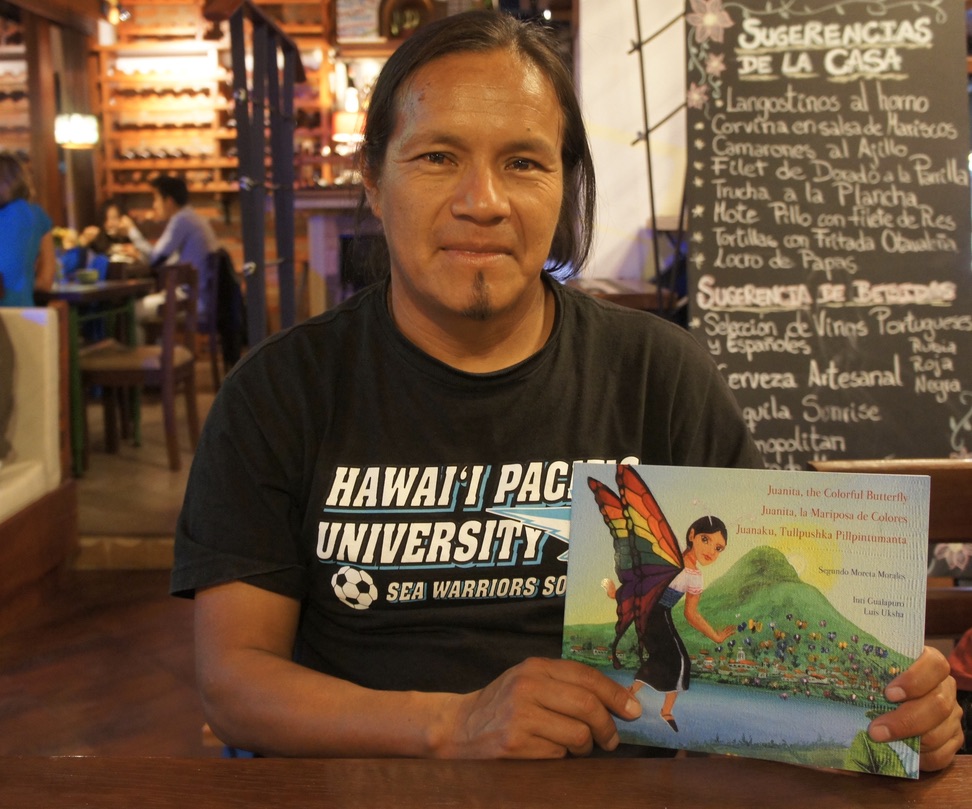
Storytelling and Legends from Otavalo, Ecuador
During this event, Segundo Moreta will share about how he came to write a children's book in Kichwa, the local indigenous language. In addition to a live reading of the book Juanita, the Colorful Butterfly, he will also share a few local legends that have been passed down orally from generation to generation.
For a group of 12: $299.99

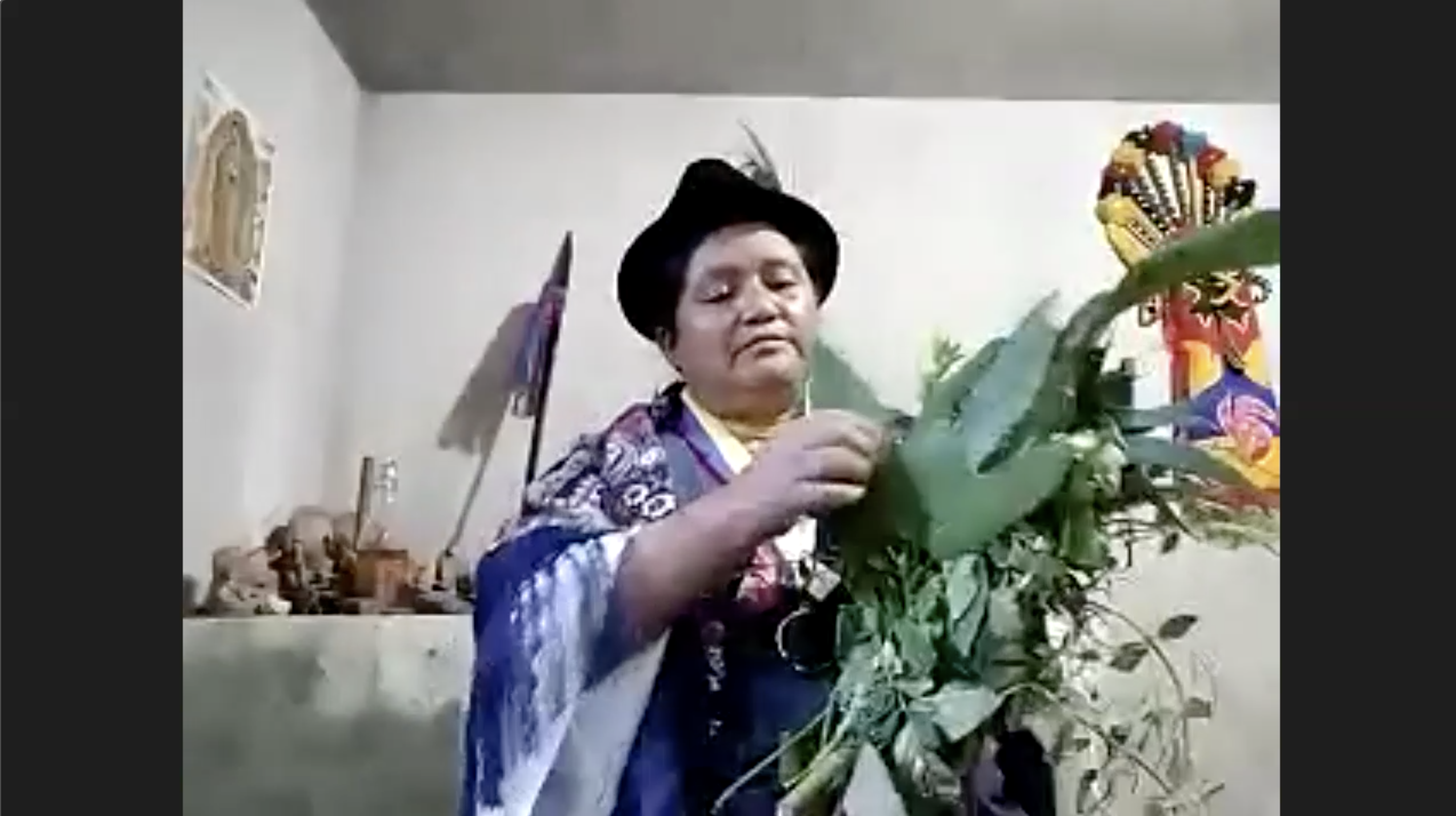
The Tandana Foundation offers a remote speaker’s bureau that can bring multiple unique perspectives on real-life issues to your classroom or meeting. Drawing on our long-term relationships with community members in Ecuador and Mali, we can help you select the speakers that will illuminate the themes of interest to your course or program, sharing the experiences, efforts, and knowledge of local leaders. Most speakers will require interpretation into English, and we provide this service, included in the fee. We also provide background information to help your students understand the context, an introduction for each speaker, and resources to further explore the topic afterward. This is a chance to show your students the value of local knowledge from Mali and Ecuador and to balance textual and theoretical learning with specific experiences. Scheduling is subject to availability of each speaker. Contact us at info [at] tandanafoundation.org to make arrangements.
Fees:
All packages include background information for preparation, introduction, speaker, and list of resources. If simultaneous interpretation is required, please add $150 per session. Contact us for details about languages each speaker can offer.
1 speaker – $250 without interpretation; $400 with interpretation
Panel of 2 speakers in one session: $350 without interpretation; $500 with interpretation
Panel of 3 speakers in one session: $450 without interpretation; $600 with interpretation
Topics:
A Relational Approach to Community Engagement (this session is currently free) |
|
Designing Community Development Initiatives for Success and Sustainability |
|
Disrupting Market Injustices through Collaborative Enterprises |
|
Intercultural Public Heath Work in rural Ecuador |
|
Community-Based Public Health Work in rural Mali |
|
Kichwa Language Valorization and Revitalization |
|
Creating the first written materials in the Tommoso language |
|
Bilingual Education in Ecuador |
|
Adult Literacy Education in Mali |
|
Transforming Gender Dynamics through Women's Leadership Programs in Rural Mali |
|
Gender Dynamics and Women's Roles in Rural Ecuador |
|
Community-based Environmental Conservation and Regeneration |
|
Andean Philosophy, Cosmovision, Cosmopraxis |
|
Medicinal and Traditional Food Plants in Ecuador |
|
Climate Change Adaptation in Ecuador |
|
Climate Change Adaptation in Mali |
|
Community-Based Entrepreneurship |
|
Community-Based Tourism |
|
Community-Centered Engineering and Project Design |
|
Andean Medicine and Intercultural Medicine in Ecuador |
|
Author Talks |
|
Transnational NGOs and Indigenous Cultures |
|
Decolonizing Transnational Collaboration |
|
Engaging with Communities through Action |
|
Between Development and Disengagement |
|
Trilingual Storybooks: Creating Literature in Tommoso and Kichwa |
|
Supporting Food Security in Mali |
|
Supporting IDPs in Mali |
|
Indigenous Justice in Ecuador |
|
Additional topics and themes available by request. Let us know what you are looking for, and we will see if we can provide a talk on that theme.
Speaker bios:
 | Alexandra Aguilar Alexandra is President of Pakarinka Women’s Association, an active member of the community council of Agato, Ecuador, and a workshop leader on topcis such as traditional medicine, Andean worldview, and other topics related to Kichwa culture. She has worked with the Ministry of Social Inclusion and the Wambrakuna Foundation to support community efforts. |
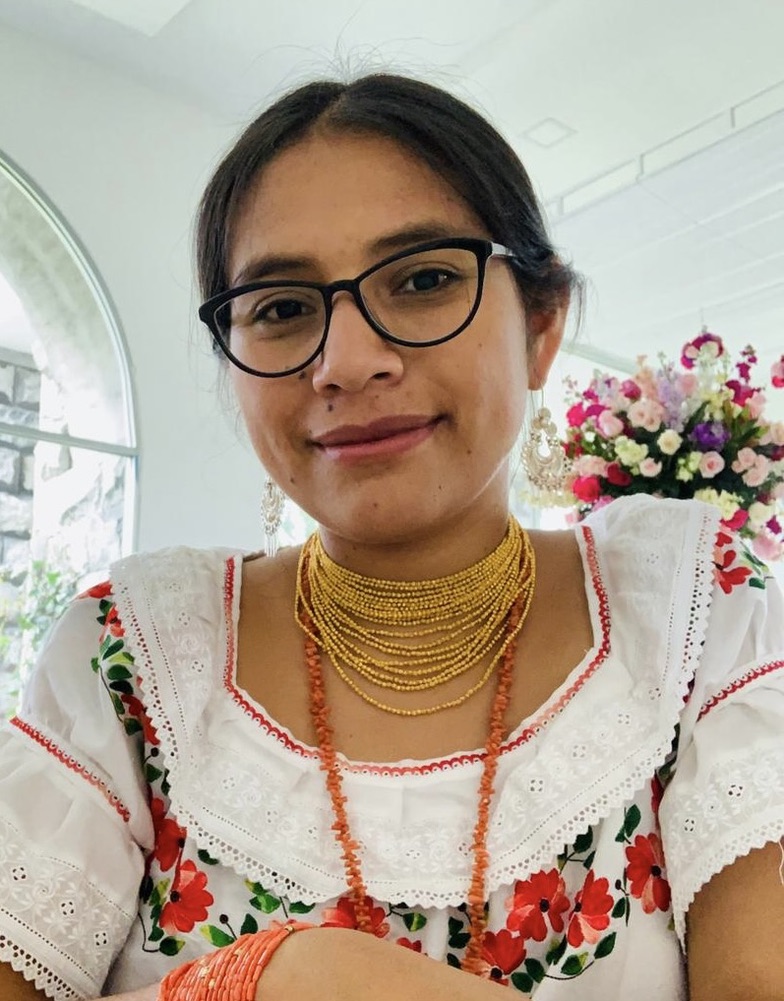 | Kaya Alta Kaya Alta, M.D. is an indigenous doctor of general medicine from Cotacachi, Ecuador, who has investigated relationships between indigenous midwifery knowledge and Western birthing practices. She has managed the Barrio Medical Strategy for Cotacachi Canton and practiced medicine at the Cotacachi Hospital. She is also a leader of K’allam’p, an indigenous organization that is opening a new birthing clinic to support local midwives. |
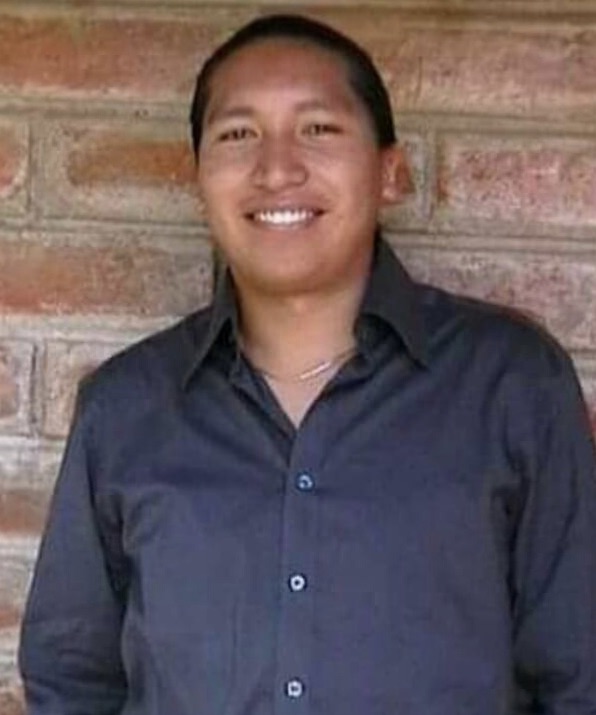 | Mauricio Bonilla Mauricio is a Kichwa Otavalo tour guide with professional training in tourism. He has worked as a community tour guide, focusing on tourism that is respectful toward both cultural and natural resources. Growing up in an indigenous family, he came to appreciate the significance and importance of the practices and traditions of his culture and developed a desire to share this knowledge with a wider audience. |
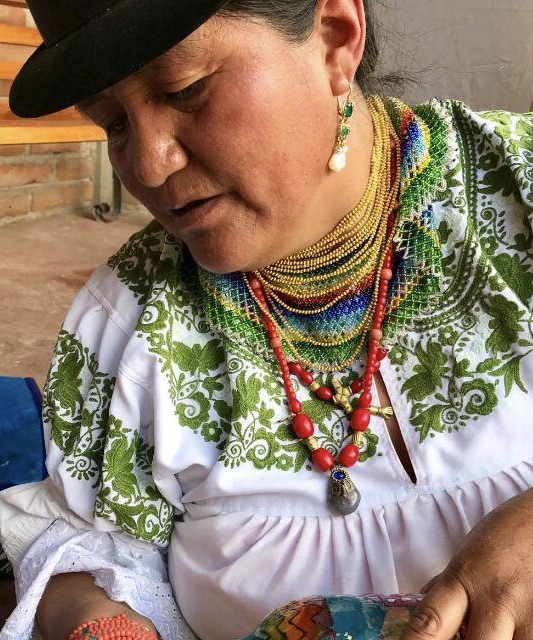 | Rosa Colta Rosa Colta is the head midwife at the Ministry of Health hospital in Otavalo, Ecuador. This hospital is widely known for its traditional birthing unit, where pregnant mothers can receive the support of a midwife skilled in local medicine practices and can choose vertical birth. Rosa also performs ceremonies and rituals, in addition to healing traditional illnesses, such as bad air. |
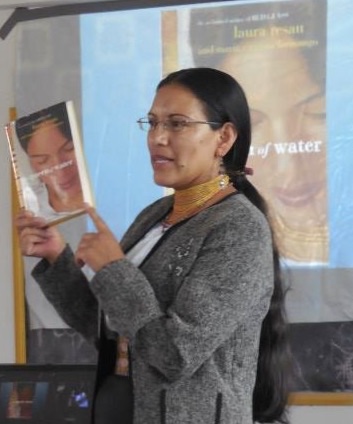 | Maria Virginia Farinango From Gualsaqui, Ecuador, Maria Virginia co-wrote the novel The Queen of Water with Laura Resau, based on the true story of her childhood and adolescence. The book shares her struggle to achieve education and also to find a place between two cultures. She has a Master’s degree in psychology and practices in Otavalo, where she lives with her husband and two children. |
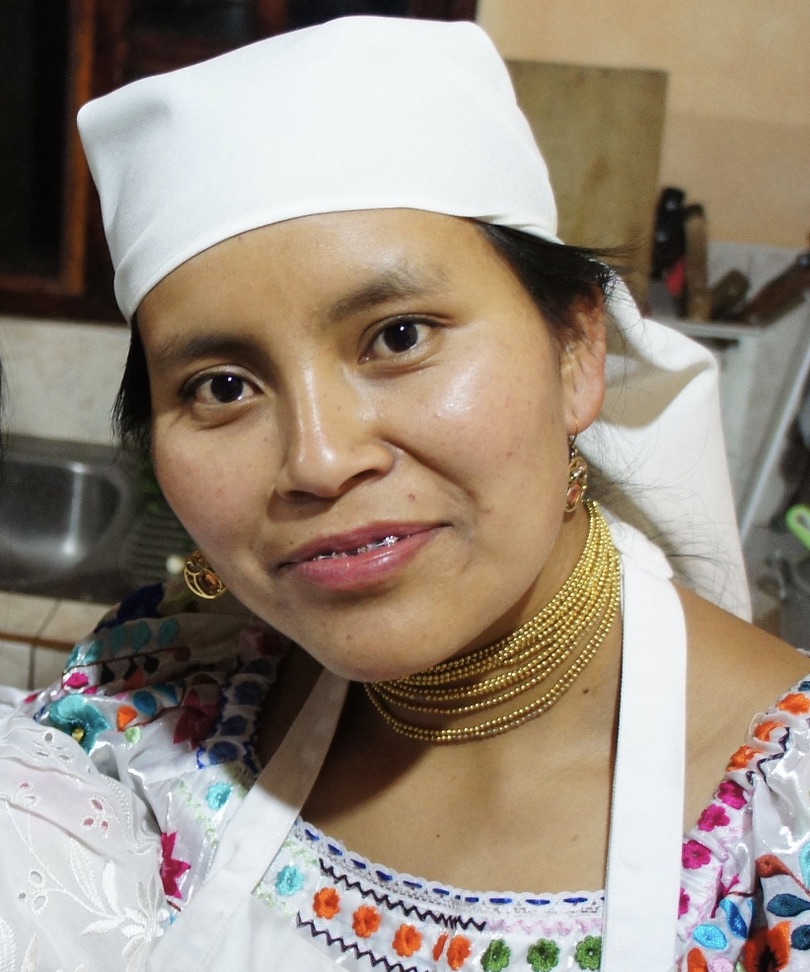 | Claudia Fuerez Claudia is the founder of Kawsaymi, a family business dedicated to sharing cultural experiences with tourists, while preserving and valorizing Kichwa Otavalo customs and culture, particularly through food. Passionate about promoting the identity and cuisine of her culture, Claudia earned a bachelor’s degree in Hospitality and Tourism and worked for a variety of hotels and a language school before focusing on her own community tourism business with her family. |
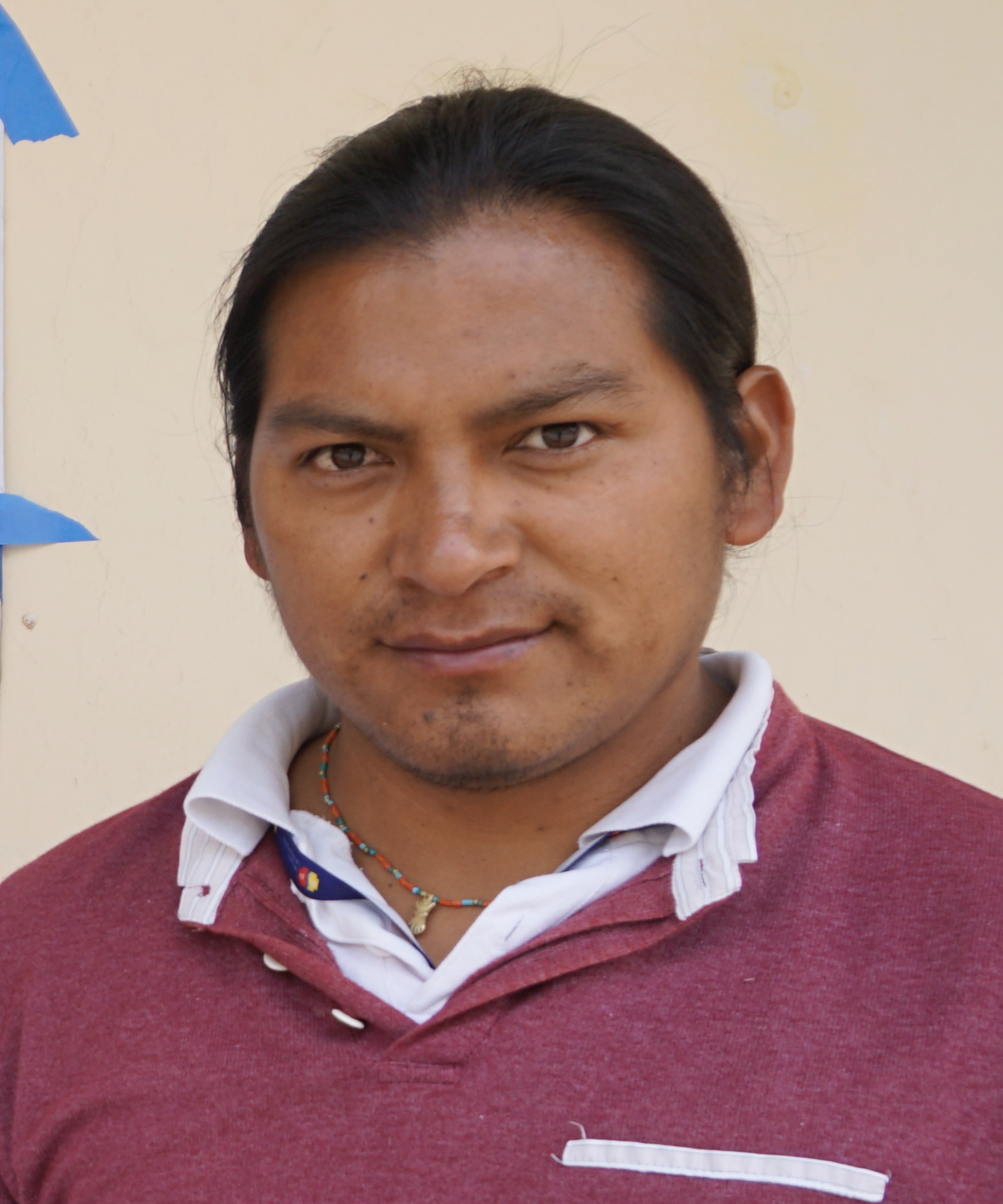 | Leo Fuerez Leo is a primary care technician working at the rural health center in Gualsaqui, Ecuador. Born in one of the indigenous communities served by the center, he is serves as a liaison between two communities and the Ministry of Health. He has been part of teams from the health center that have visited patients in their homes during the pandemic, as well as the mobile clinic teams of The Tandana Foundation. |
|
| José Maria Fuerez From the community of Panecillo, Ecuador, José Maria is a farmer and father of five. He has always sought to teach his children love for their cultural roots and pass down knowledge he learned from his parents. Using the agricultural calendar he learned from his parents, based on the sky and moon, he farms not only for his family but also for their business, Kawsaymi, a community tourism enterprise and cooking school. He gives tours of hits garden, explaining the medicinal uses of various plants, as well as demonstrating the value of ancestral food crops, some of which have been largely abandoned by the community. |
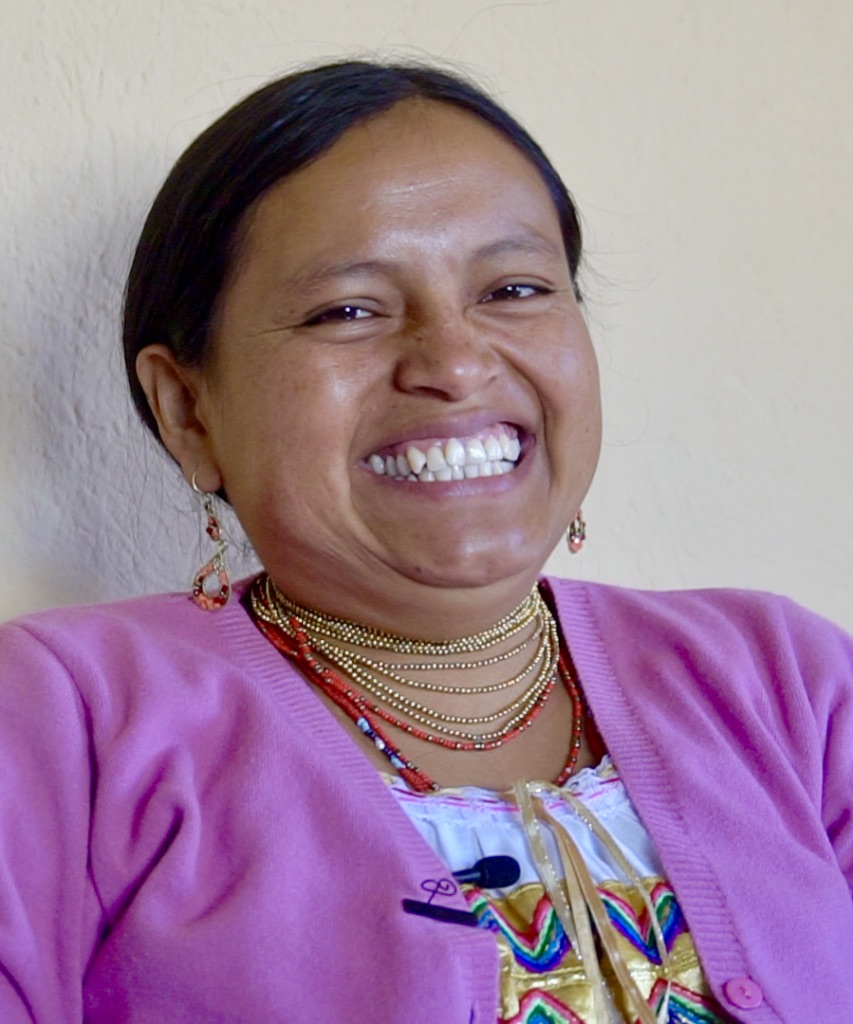 | Margarita Fuerez In 2007, Margarita received a scholarship from Tandana that helped her finish high school. A few years later, she became Tandana's first university scholarship recipient (studying Accounting and Auditing at the UNIANDES University) and pioneered the community service requirement of Tandana's scholarship program. Margarita began working with Tandana's Electronic Medical Record System in September 2015, and once that work was complete, she has continued to use her sharp mind and cheerful disposition to keep Tandana's programs in Ecuador running smoothly and its accounting in order. |
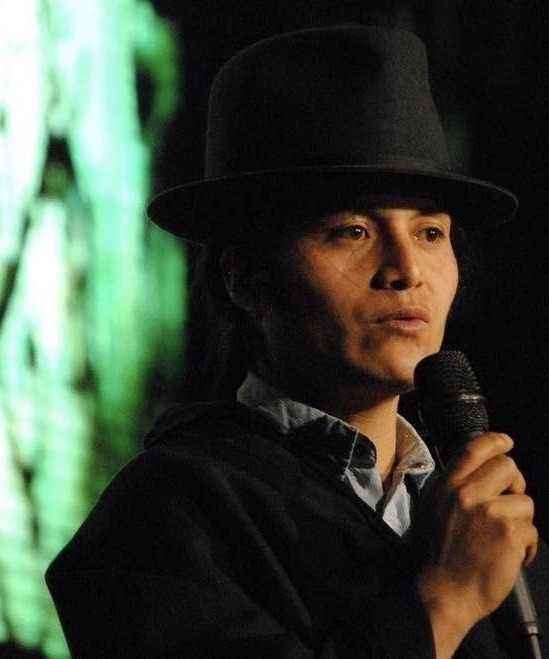 | Santiago Gualapuro Santiago Gualapuro is from the community of Gualapuro near Otavalo, Ecuador. He is the first generation of Kichwa from his community to have accessed higher education. After earning a Bachelor’s in Science in Agricultural Business from the Universidad San Francisco in Quito, he spent some time in Canada where, in conjunction with other Canadian linguists, he authored the first Kichwa-English dictionary. From there, he earned a Masters in Linguistics from the University of Texas at Austin, a Masters in Hispanic Linguistics at Ohio State University, and he is currently a Ph.D. student at Ohio State University. He is now working together with the foundation to launch prizes for students who write their theses in Kichwa through the Killkashun project, Killkashun meaning “Let’s write.” |
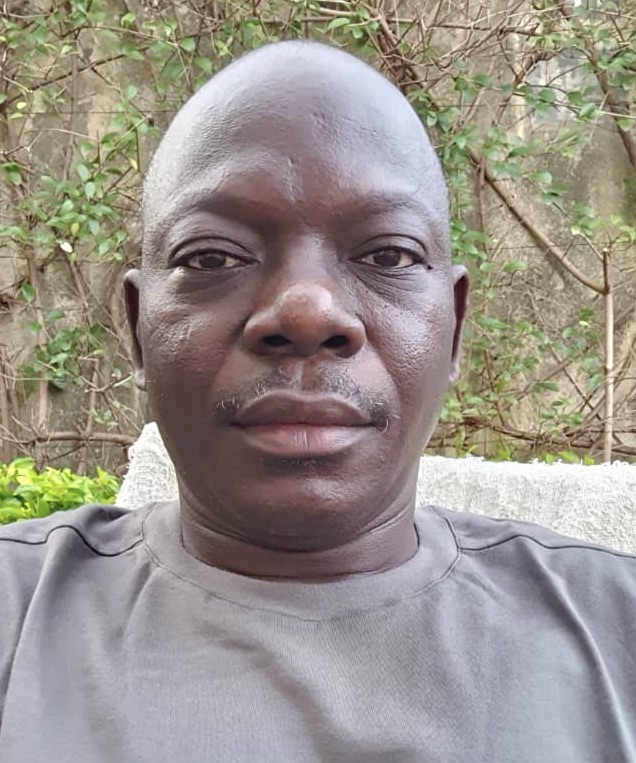 | Ambara Kassogué Ambara is the laboratory director at Hopital du Mali in Bamako, a hospital built through Chinese-Malian cooperation. He has an associate’s degree in agronomy, a bachelor’s degree in microbiology and biochemistry, and a master’s degree in biotechnology. Ambara coordinates all of the laboratory operations, research, and lab personnel for the hospital and is responsible for COVID-19 testing and follow up with patients who have been isolated. |
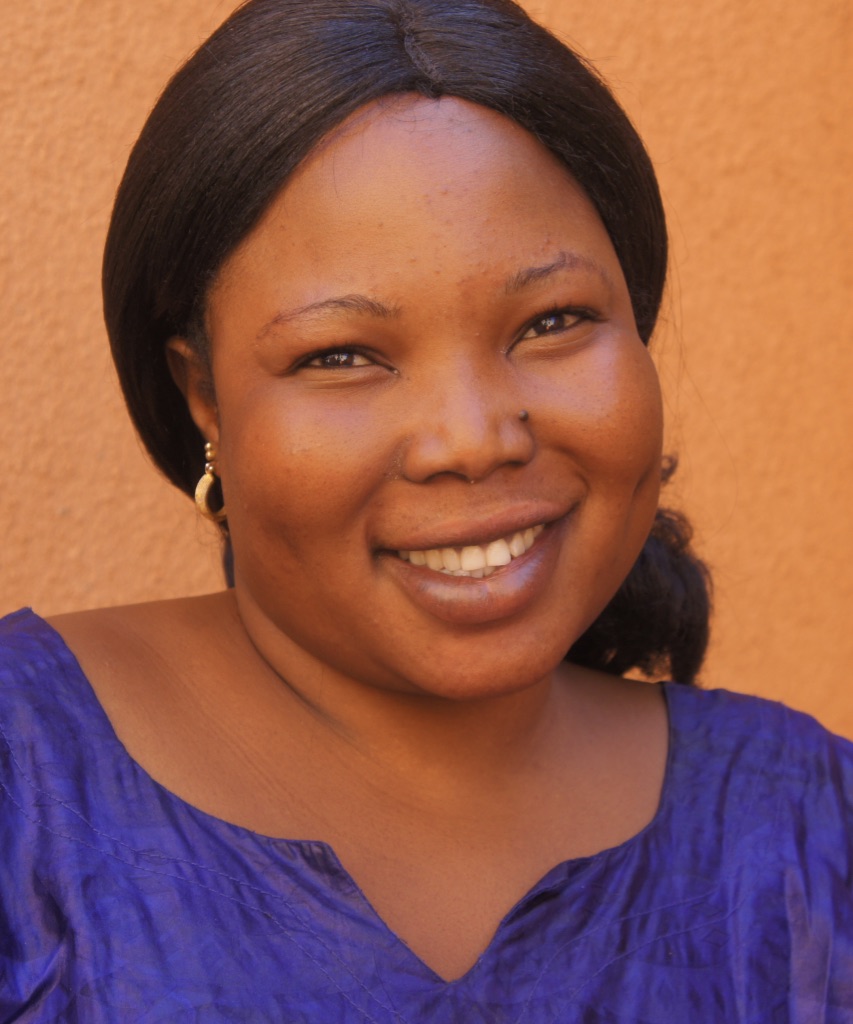 | Kessia Kouriba Kessia is committed to being a role model and a leader for other women. She has worked as a literacy instructor for Tandana since 2014, teaching in several villages in Wadouba, Ségué-Iré , and Ondogou Townships. She enjoys learning about the different cultures and customs in the villages she visits. Prior to working for Tandana, Kessia spent two years working for the Evangelical Development Agency of Mali as a teacher for their Strategic Program for Accelerated Schooling/Gateway Program. Kessia obtained her high school diploma in human science and is from the village of Kansongo. |
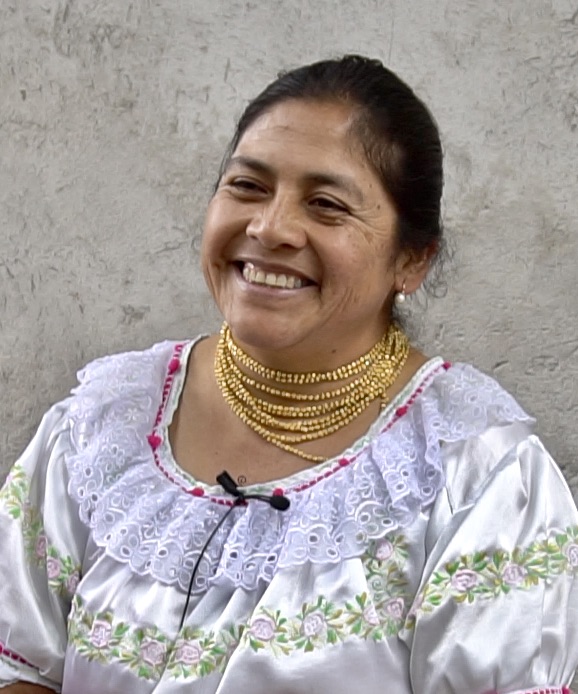 | Maria Esther Manrrique Maria Esther has served as an auxiliary nurse at the rural health center in Gualsaqui, Ecuador for 27 years. As a compassionate and skilled nurse of indigenous heritage, Maria Esther has earned the trust of her many patients. She has been part of teams from the health center that have visited patients in their homes during the pandemic, as well as the mobile clinic teams of The Tandana Foundation. |
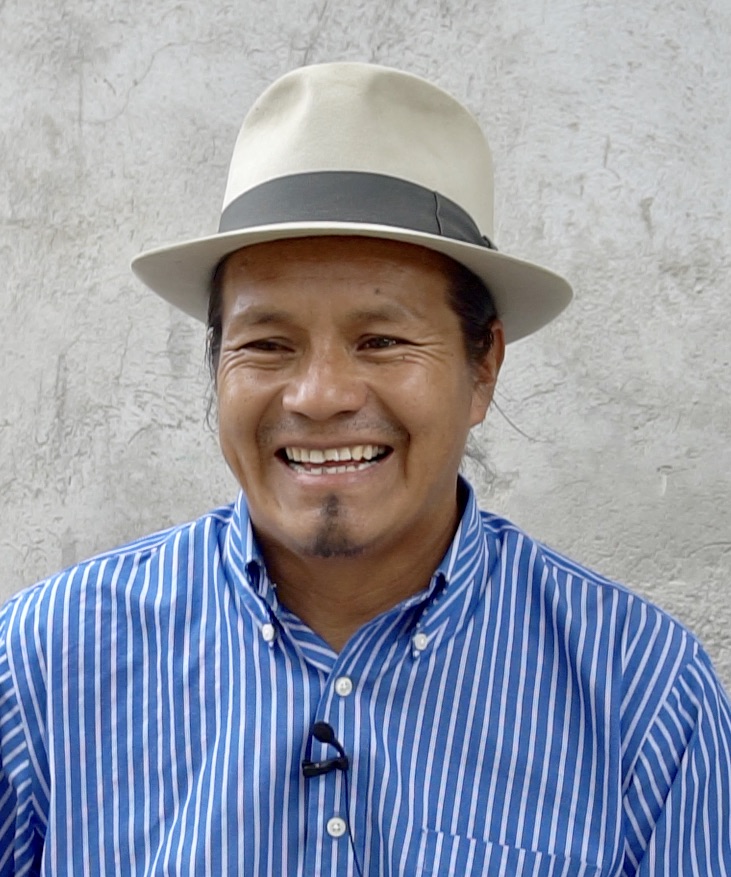 | Segundo Moreta Growing up in Rey Loma, Ecuador, Segundo did not learn Kichwa as a child, but as an adult he became passionate about the language of his people. He teaches Kichwa language and Andean worldview at the high school level and seeks every opportunity to revitalize the language and culture of his people. He is the author of the trilingual children’s book Juanita the Colorful Butterfly. |
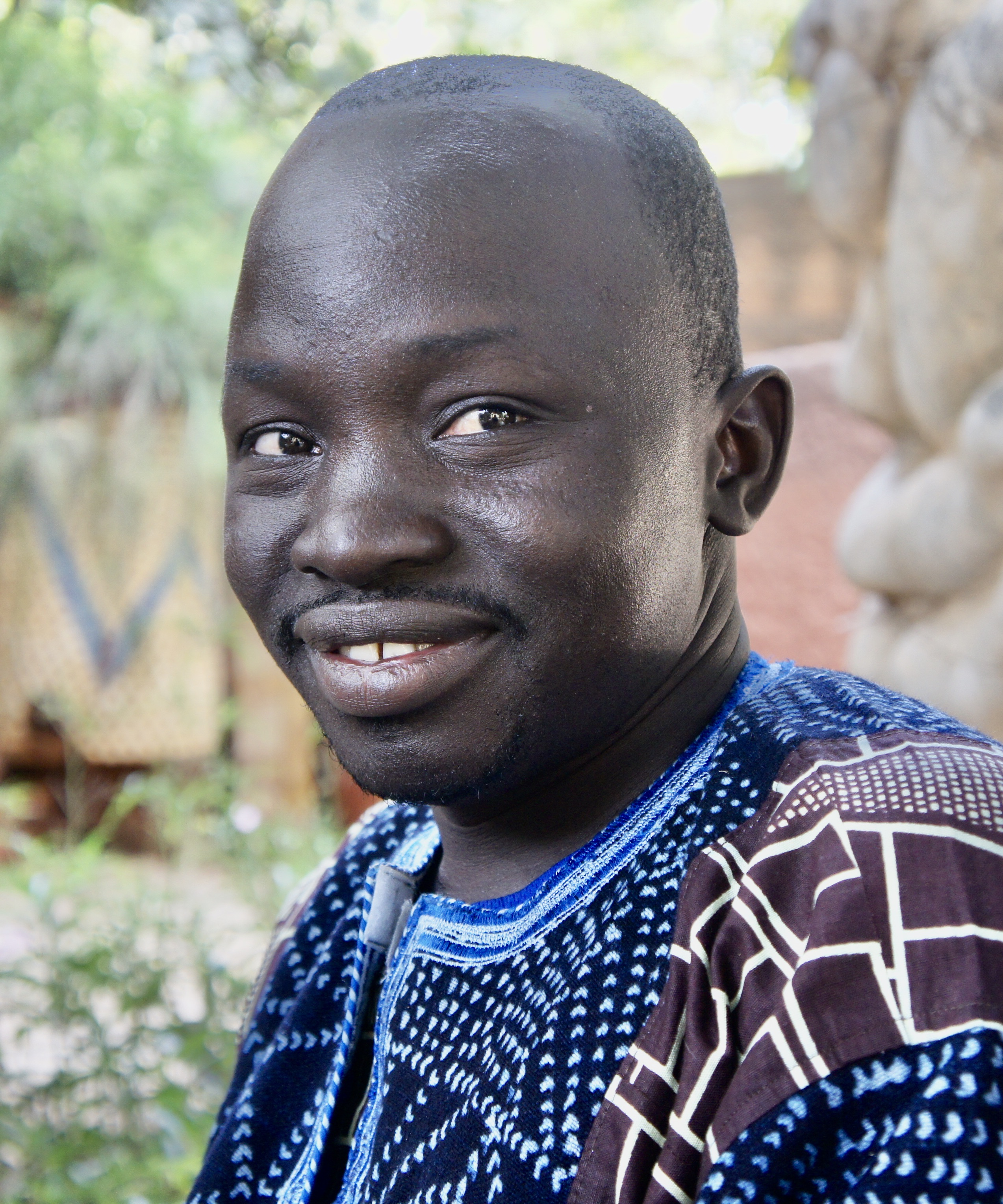 | Housseyni Pamateck After earning a bachelor’s degree in Geographical Development from the University of Social Sciences and Management in Bamako, Housseyni took on the role of Local Supervisor for Tandana, He organizes meetings, assemblies, and discussions, shepherding each project from the selection of priorities through the planning and implementation to the follow up to ensure that its positive impact is sustained. He participated in a special commission to address an outbreak of COVID-19 in Segué-Iré Township, Mali. |
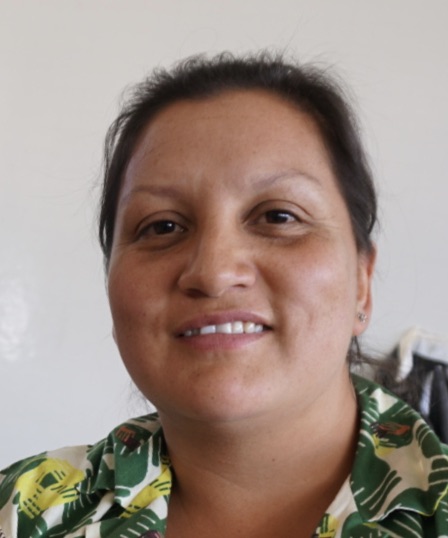 | Verónica Pazmiño Verónica Pazmiño is Tandana’s Scholarships Coordinator, and she empathizes with students in the program because she has dealt with the same issues scholarship students face. Verónica grew up in Panecillo, Ecuador and developed a love for English, which she got to practice when Anna Taft lived with her family in 1998. She went on to work as an English teacher while continuing her education at the Polytechnic Army University. In 2008, Verónica began interpreting for Tandana's health care volunteers and since then has supported Tandana in innumerable ways. Verónica enjoys helping community members with projects, sharing her customs and traditions with the volunteers, and learning more English. |
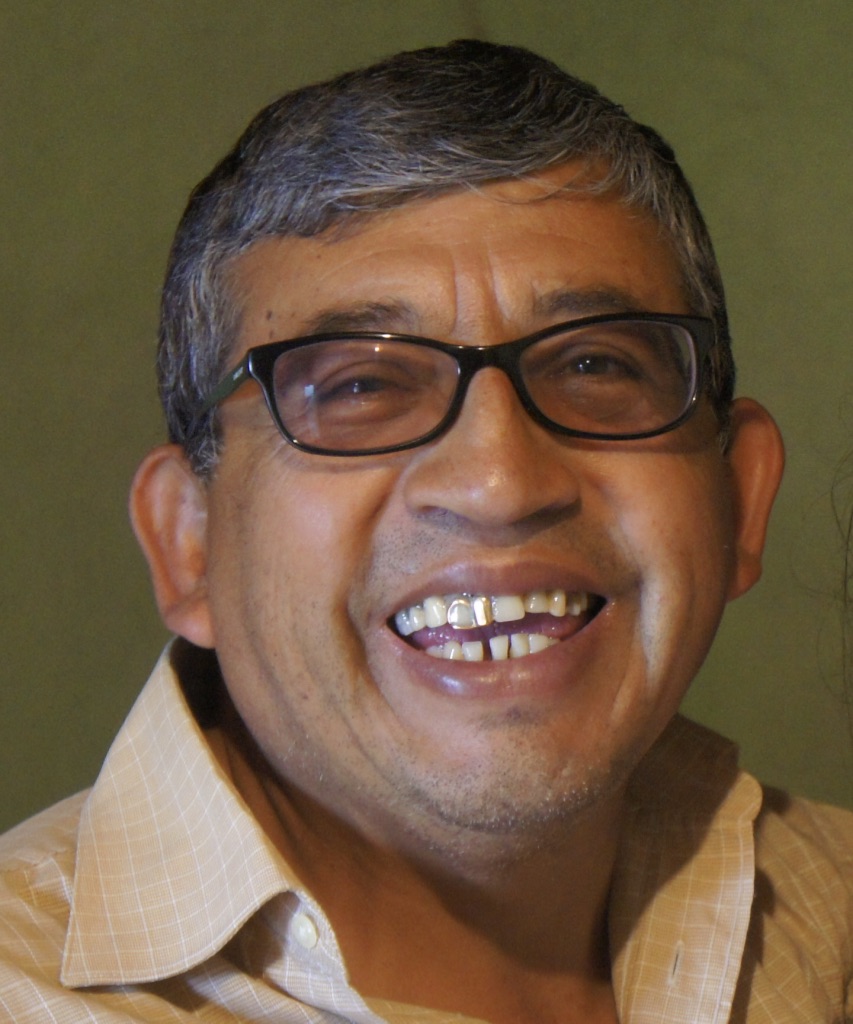 | Vicente Pazmiño Vicente Pazmino has lived in Panecillo, Ecuador his entire life, and he has dedicated much of his time and energy to bettering his community. Along with his father, Vicente was instrumental in the installation of the Panecillo Regional Potable Water System, which serves five communities. His mother, Clemencia Morales, was a famous mestiza healer. She taught Vicente how to heal, and some of her patients still visit him to be cured. Vicente also serves on the community health committee of the local government health center, so he has familiarity with both local and Western medicine in the area. |
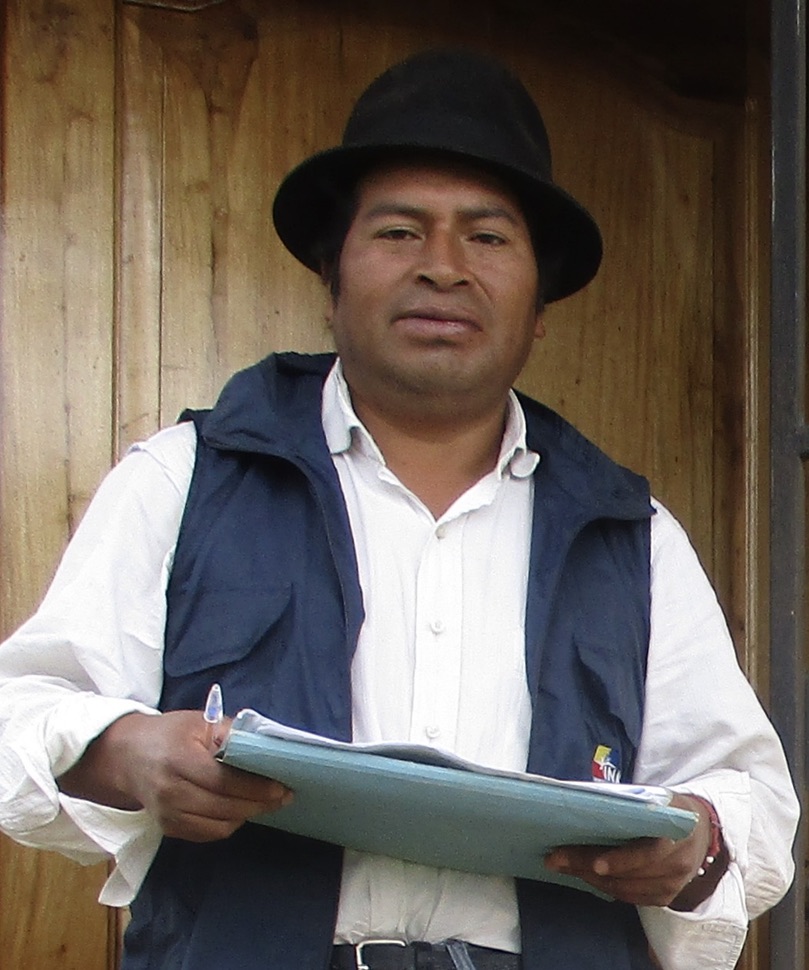 | Galo Perugachi With a degree in environmental management, Galo has been working at the weather station in Inguincho, Ecuador since he was twelve years old. Over the years, he has learned how to use new technologies to record the weather, and he has noticed many changes in the data he collects. Through this experience, he has become an advocate for awareness of climate change and for environmental conservation. |
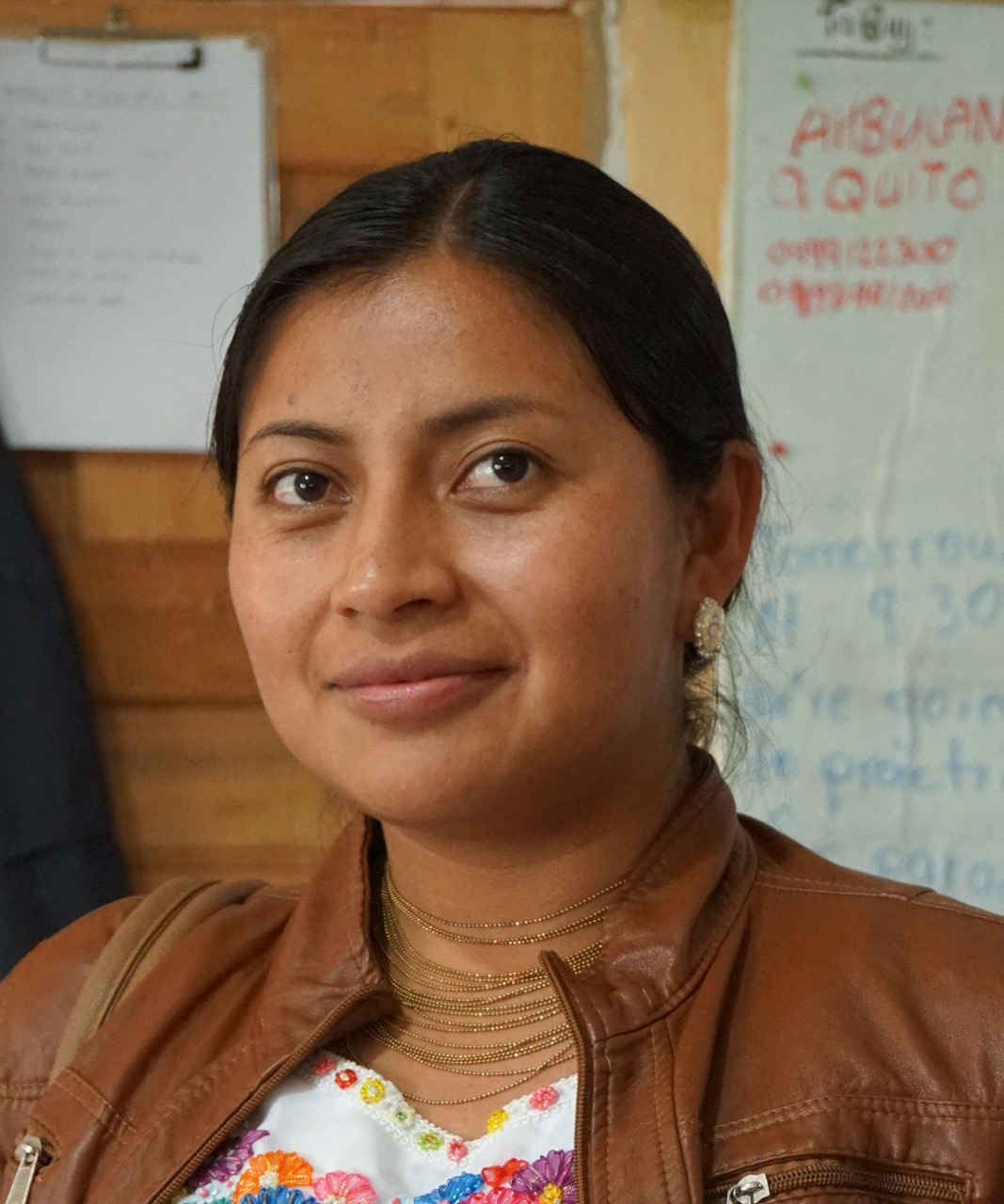 | Gladys Perugachi Gladys Perugachi is a former Tandana scholarship student who earned a law degree, and now runs her own law firm “Perugachi and Associates” in Otavalo, Ecuador. From her studies and personal life experiences she has gained a comprehensive understanding of gender dynamics in Kichwa culture. She delves into themes such as public health, community politics, education, and more to explain how gender and social dynamics have evolved over time and shaped the present day situation. |
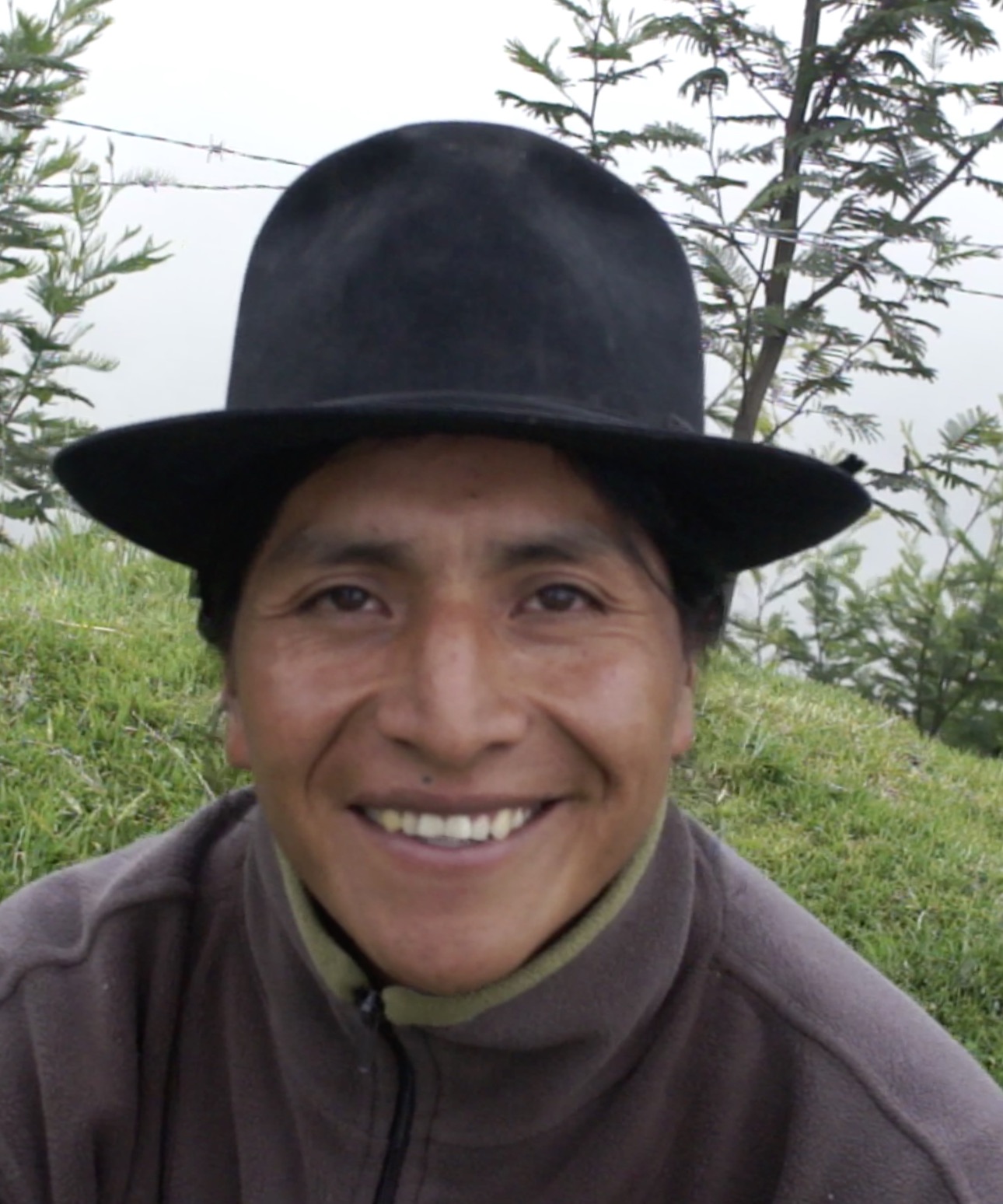 | Fabian Pinsag Fabian has a degree in intercultural bilingual education and works for Ecuador’s Ministry of Social Inclusion in early childhood bilingual education and also orienting parents about wholistic care for their children. He has served as President of his community Muenala, Ecuador and coordinated intercultural activities with community members and Tandana volunteers. |
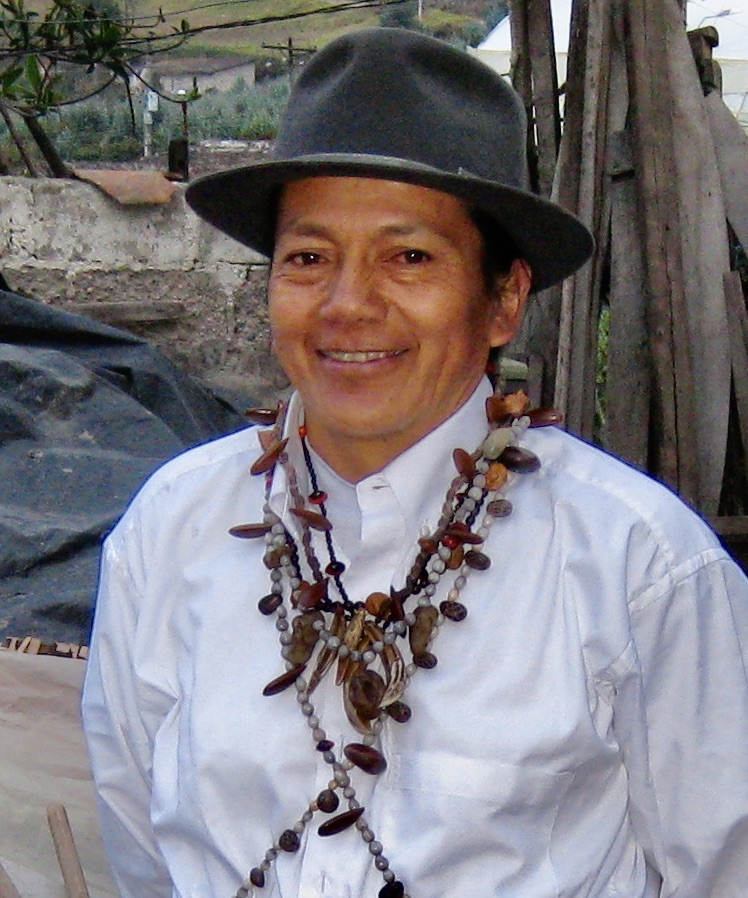 | Santos Quilumbango Santos is a yachak, a practitioner of local medicine, from San Juan Alto, Ecuador. He is a member of Consejo Yachak Runa Amazonas del Ecuador, an association of yachaks, and has participated in meetings of Andean healers from different regions. He works with medicinal plants, candles, dreams, and ayahuasca. |
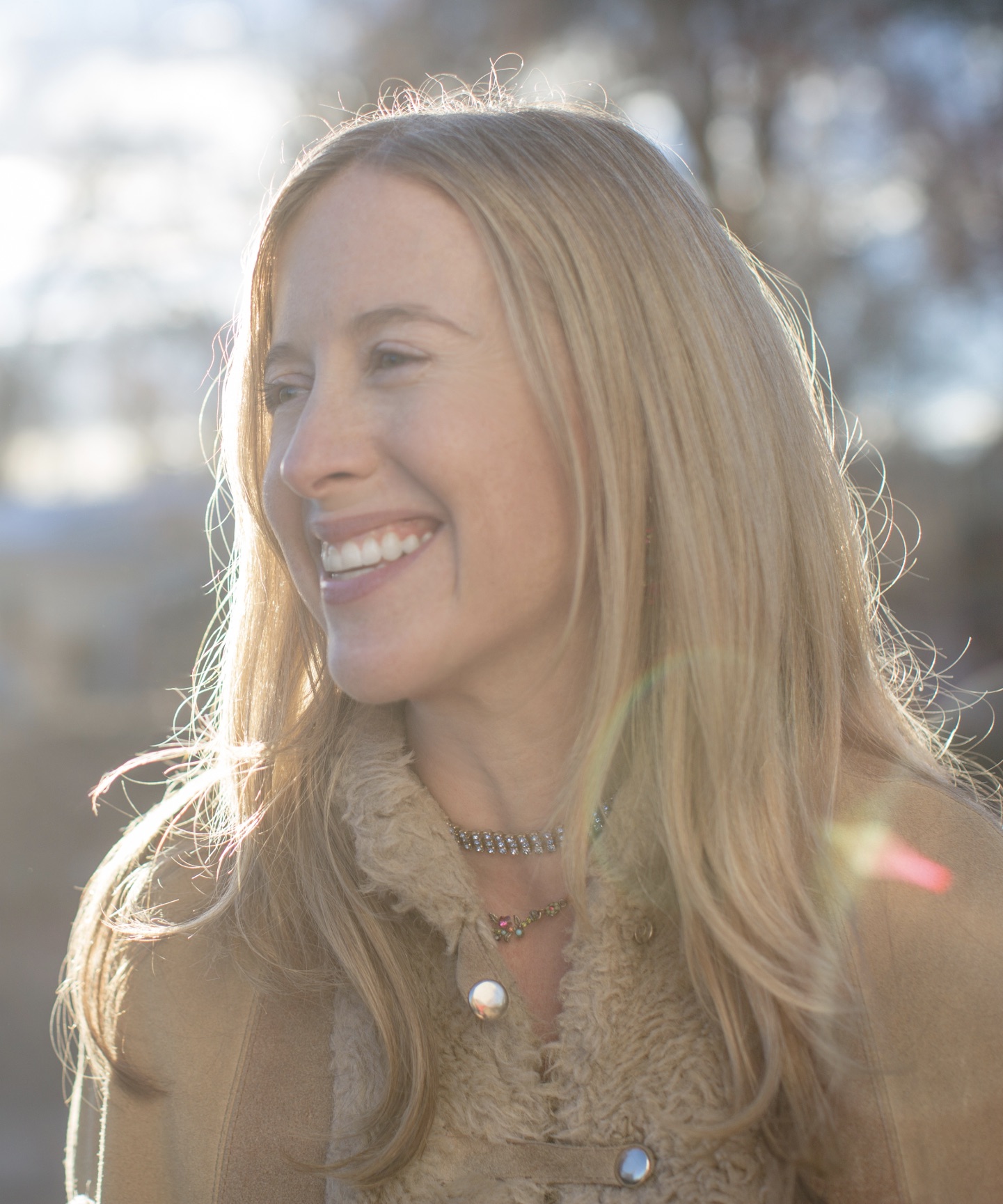 | Laura Resau Laura Resau is the author of several highly praised novels, including The Queen of the Water, which she co-authored with Maria Virginia Farinango of Otavalo, Ecuador, about Maria Virginia’s experiences growing up, as well as The Lightning Queen, Star in the Forest, Red Glass, and What the Moon Saw. She is also the author of the acclaimed notebook series, which includes: The Indigo Notebook, The Ruby Notebook, and The Jade Notebook. Laura's books have garnered many state and library awards, as well as multiple starred reviews. She lives in Fort Collins, Colorado, and donates a portion of her royalties to indigenous rights organizations. |
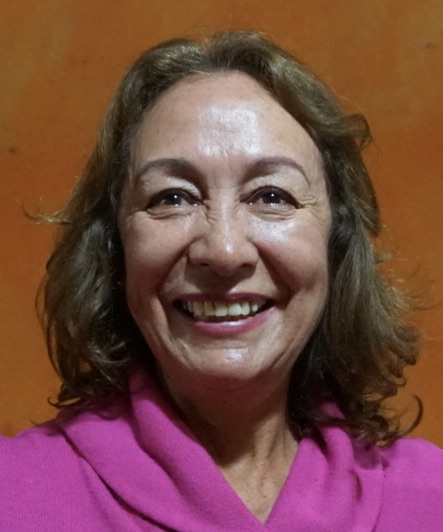 | Virginia Sánchez Virginia's knowledge of Ecuador's health system, gained from 15 years as a financial controller for the Ministry of Public Health, is invaluable in her position as Patient Follow up Coordinator at The Tandana Foundation. In addition to working for the Ministry of Public Health, she has managed a pharmacy in Ecuador. She has coordinated Tandana’s support for the Ministry of Health during the pandemic. |
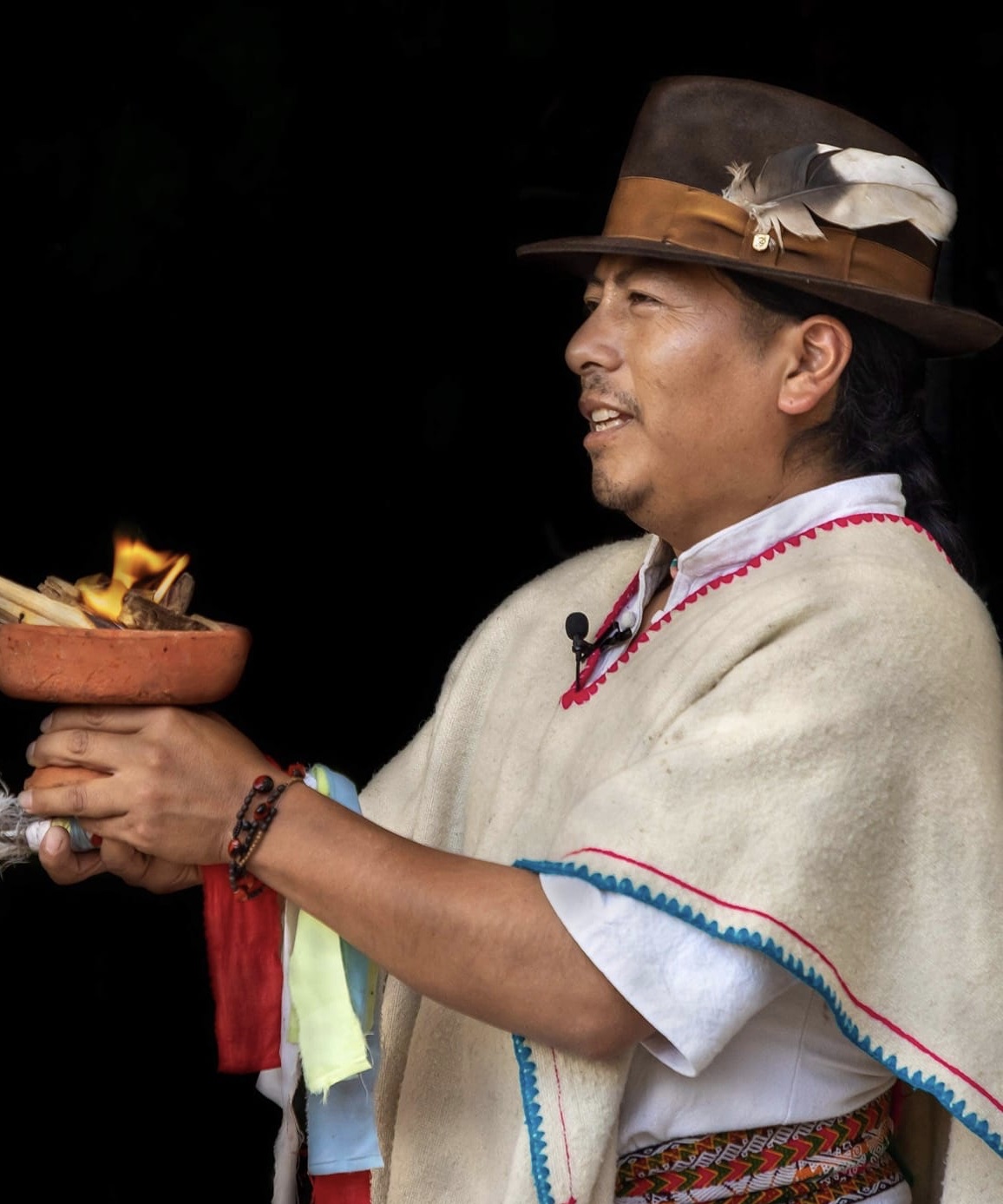 | Willak Santillán Willak is from the community of Agato, Ecuador. He comes from a long line of yachaks, who have transmitted local knowledge and wisdom to him through many generations. When he was thirteen, he became very curious about ways of understanding life, and he traveled to meet with elders from different cultures who reinforced and expanded what he had learned from his own family. |
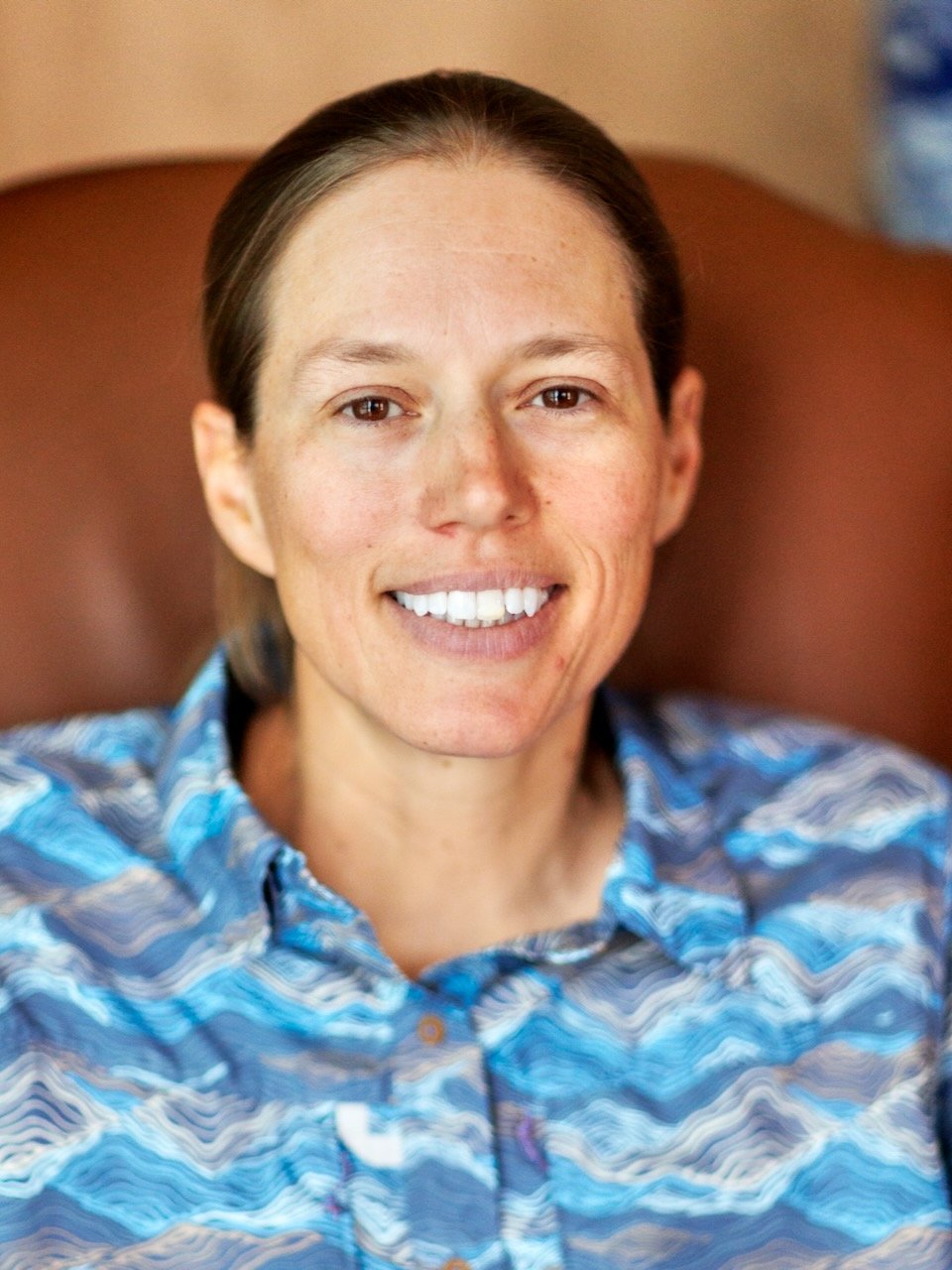 | Anna Taft Anna earned a bachelor’s degree from Whitman College with honors in Politics and a minor in environmental studies. After graduation, she worked for The Traveling School, teaching Spanish, history and literature to high-school students in the Andes and New Zealand. Anna founded Tandana to increase opportunities for intercultural sharing and to support community initiatives envisioned by her friends in Ecuador and Mali. For the last thirteen years, she has led the foundation in its partnership with communities in Mali and Ecuador. She also holds a Master’s of Arts in Liberal Studies from Skidmore College with a focus on Morality in a Pluralistic World. |
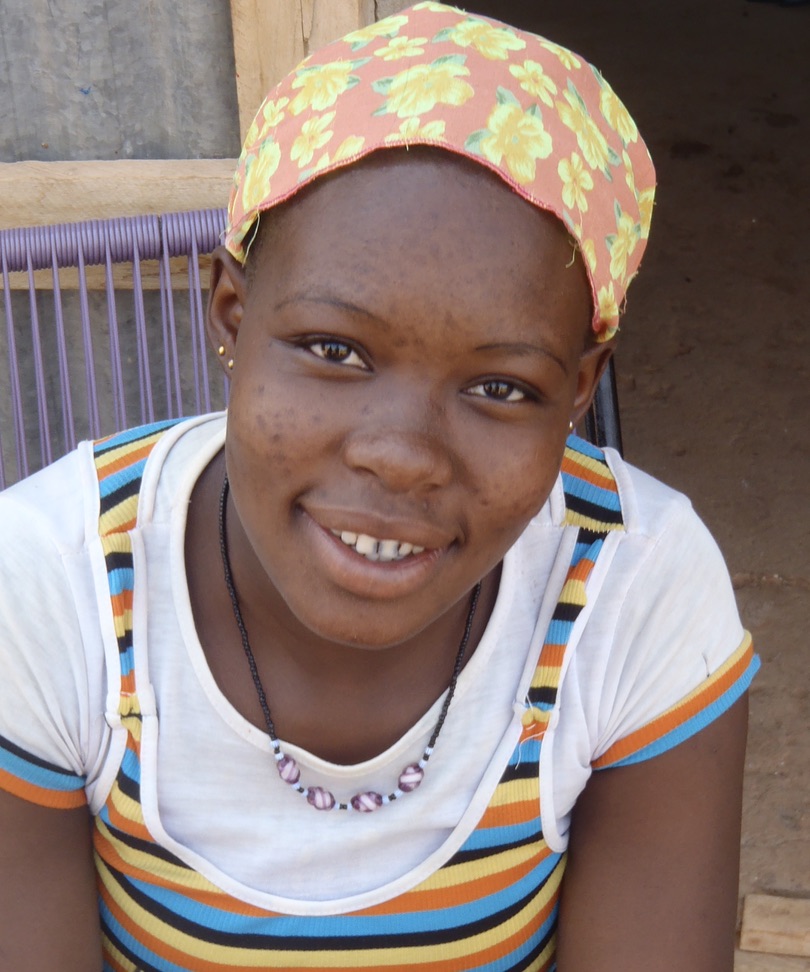 | Deboura Tembiné A midwife assistant, currently studying to become a Health Technician, Deboura has worked at a local health center in Bandiagara District for five number of years. Having grown up in the village of Kansongo, Deboura is familiar with the challenges rural residents face in accessing health care. |
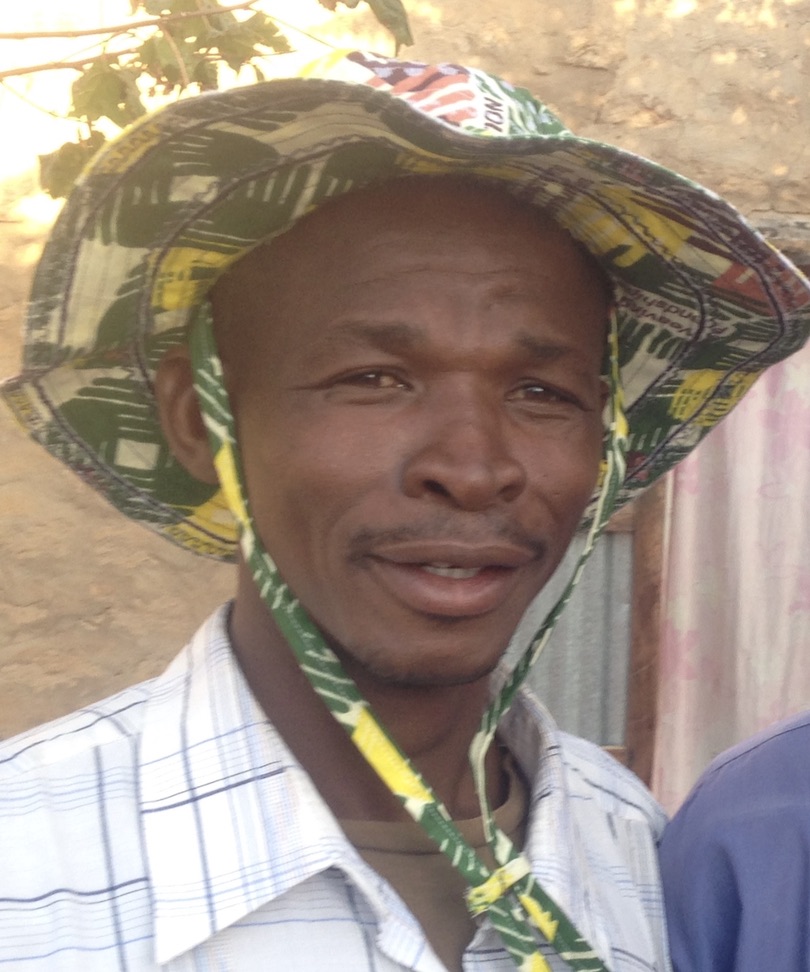 | Jacob Tembiné A teacher with first responder training, Jacob has led The Tandana Foundation’s COVID-19 education team and has personally provided support and follow up to Segue-Iré Township, Mali during the COVID-19 outbreak there. Jacob is also president of AFTCD/PD (Literacy, Training, Translation, and Document Coneception of Dogon Country), a linguistic association that has taken the lead in developing written materials in Tommo So, and a former literacy instructor. |
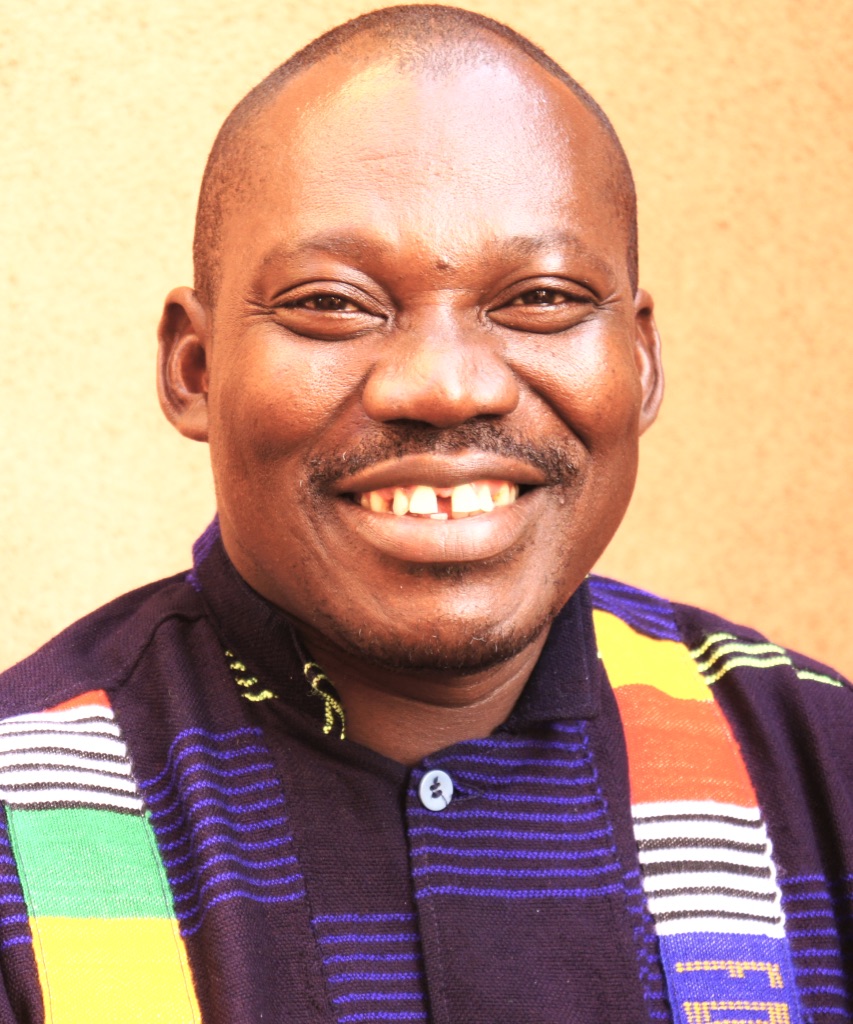 | Moussa Tembiné As Mali Program Manager for The Tandana Foundation, Moussa applies his deep familiarity with the languages, culture, customs, and social organization of Bandiagara District to the coordination of successful projects. Before joining Tandana at its inception, he worked for over 10 years with a wide variety of development NGOs, including Action Mopti, Amprode Sahel, and PRBP (Projet de Rehabilitation des Barrages et Pistes), in addition to serving the government of Mali as a Superior Agricultural Technician. As he completed a bachelor’s degree in Community Development, Moussa wrote a thesis on the challenges, successes, and determining factors of grain banks in Wadouba Township.
|
|
| Ousmane Tembiné An elementary school teacher from Kansongo, Mali, Ousmane is Secretary of the Olouguelemo Environmental Association, which has brought together 19 villages to work together on environmental conservation initiatives. The Association has delineated protected forest areas, acquire training in Assisted Natural Regeneration of trees, created two tree nurseries, produced efficient cookstoves to reduce the demand for firewood, constructed stone contour lines for erosion control, and leads a reforestation campaign each year. |
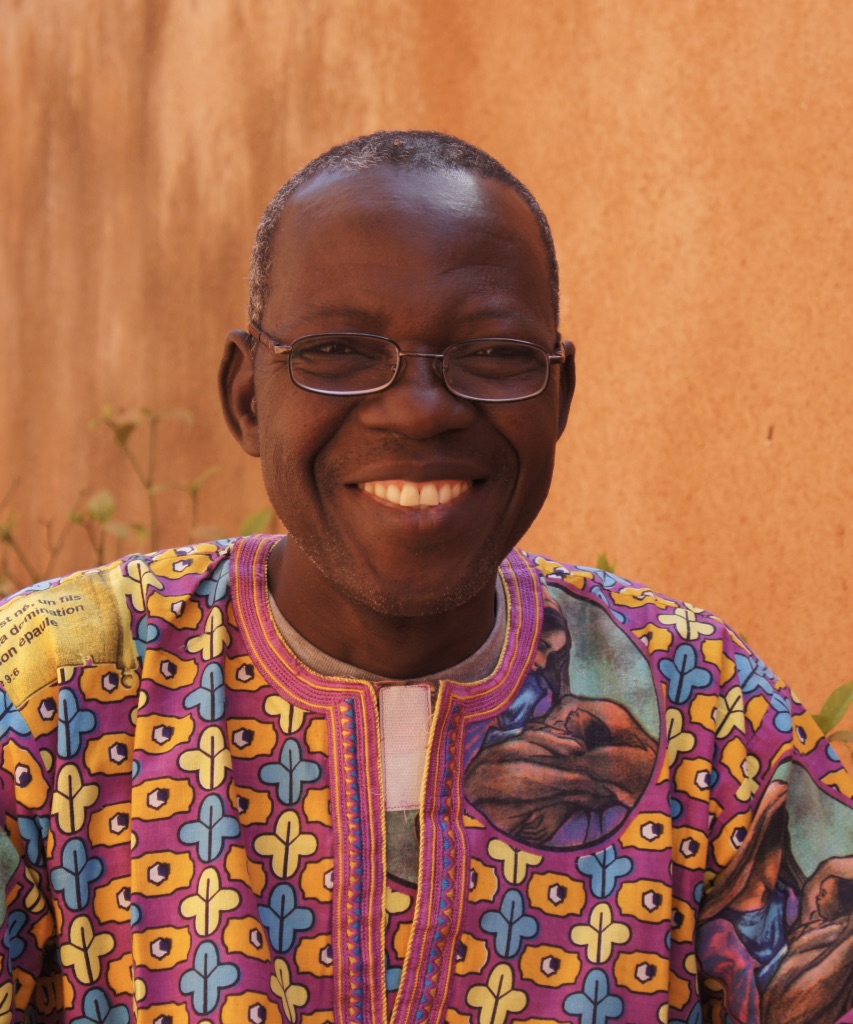 | Boureima Yalcouyé An accountant by trade, Boureima is a founding member of AFTCD/PD (Literacy, Training, Translation, and Document Coneception of Dogon Country), a linguistic association that has taken the lead in developing written materials in Tommo So. He has also participated in workshops sponsored by SIL to standardize the writing of Tommo So. |
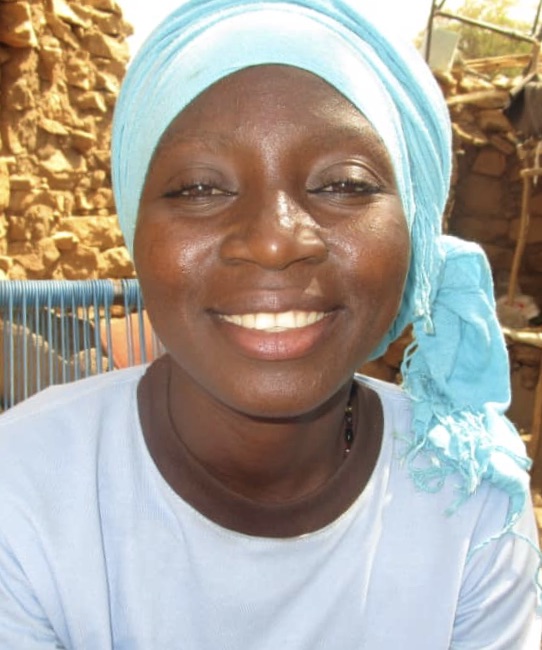 | Hawa Yalcouyé Originally from Nalou, Mali, Hawa attended primary school in Kilegou, secondary school in Ningari, and earned a bachelor's degree from the university in Bamako. She had not had a chance to use her degree for employment until she became a literacy instructor for The Tandana Foundation in 2019. Since then she has been teaching women literacy and numeracy in the Tommo So language and helping to lead women’s leadership workshops. |
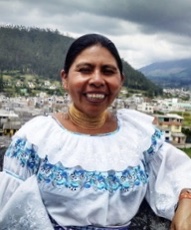 | Luzmila Zambrano Luzmila is the General Coordinator of the Otavalango Living Museum in Otavalo, Ecuador, where she leads tours, organizes cultural events, and teaches Kichwa classes. She was instrumental in organizing a group of 20 families to take over the former textile factory where their parents had been forced to work and convert it into a living museum celebrating their culture. |
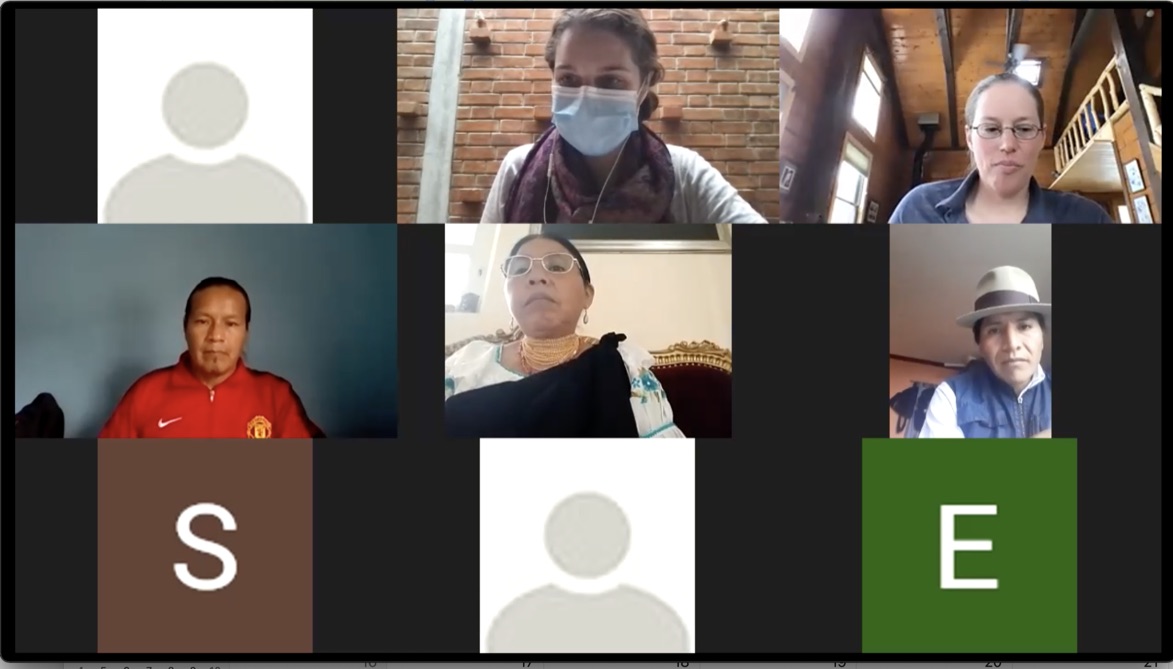
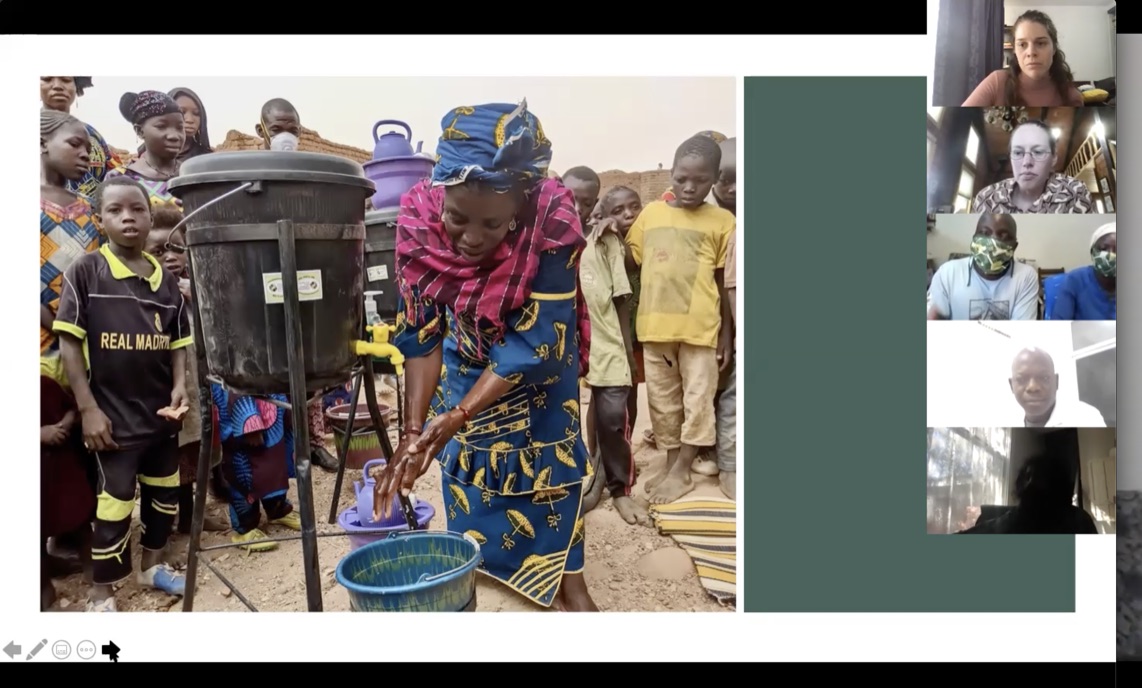
The Tandana Foundation can also work with you to design online academic courses for your university or high school students. These courses combine readings and online discussion with presentations from many local leaders from Mali and Ecuador. Students have a chance to hear directly from local people involved in work related to the course theme, ask questions, and reflect on comparisons between their own experiences and those of the speakers. Below are examples of 1-credit courses we have taught for Whitman College. Contact us at info [at] tandanafoundation.org to discuss developing a course for your institution. Fees vary, depending on length and dynamics of the course.
Health in Ecuador and Mali: Pandemic, Race, Culture
This is a 1 credit, remote-learning workshop for students on the intersections of the COVID-19 pandemic, race, and culture and their effects on health in two different global contexts: Ecuador’s Otavalo Canton and Mali’s Bandiagara District. Drawing on the insights of a variety of speakers from both Ecuador and Mali, this course will address issues in the experience of the pandemic, encouraging students to draw comparisons between their own experiences and those of speakers from these two very different contexts. It will also address intersections of race and culture with health care more generally. Themes will include scarcity of resources for mitigating the pandemic, relationships between government ministries, NGOs, and other actors, data and reporting, and cultural factors affecting response to COVID-19, as well as relationships between Western and local medicine in both contexts, racial disparities in access to health care in Ecuador, and transnational collaborations on health care work.
Class dynamics will include Zoom meetings with live presenters from Ecuador and Mali, Zoom discussions, readings, videos for students to watch, and a chat discussion board. Tandana will provide simultaneous interpretation for presenters.
Course Outline
1. Introductions and Expectations
a. Student introductions
b. Course expectations
c. Introduction to Tandana, Otavalo, and Bandiagara
2. Experience of the pandemic in Otavalo
a. Ministry of Health, NGOs, resources, data, and communication
b. Experiences from the field in local health work
c. Cultural debates regarding response to the pandemic
3. Experience of the pandemic in Bandiagara
a. Ministry of Health, NGOs, resources, data, and communication
b. Experiences from the field in local pandemic response
c. Cultural debates regarding response to the pandemic
4. Race, culture, and access to health care in Ecuador
a. Relationships and collaborations between "traditional" and Western medicine
b. Disparities and barriers in access to health care
c. Transnational collaborations on health care – Tandana and Ministry of Health
5. Geography, culture, and access to health care in Mali
a. Relationships between "traditional" and Western medicine
b. Disparities and barriers in access to health care
c. Transnational collaborations on health care – China and Ministry of Health
6. Final class discussion
a. Comparisons and connections between Ecuador, Mali, and U.S.
b. Students give oral presentations with comparative analysis
Educators (see bios on Speakers' Bureau tab):
- Anna Taft, instructor
- Nicole Melendez, teaching assistant
- Max Chauvet, interpreter
- François Chauvet, interpreter
- Gabriela Cleefi, interpreter
- Virginia Sánchez
- Leo Fuerez
- Vicente Pazmiño
- Ambara Kassogué
- Housseyni Pamateck
- Jacob Tembiné
- Santos Quilumbango
- Rosa Colta
- Maria Esther Manrrique
- Moussa Tembiné
- Deboura Tembiné
Strengthening Indigenous Languages: Tommo So and Kichwa
This is a six-week, 1 credit, remote-learning workshop for students on the variety of activities, efforts, and dynamics involved in valorizing, revitalizing, and writing the Kichwa and Tommo So Languages. Drawing on the insights of a variety of speakers from both Ecuador and Mali, this course will address issues in the contemporary dynamics and valorization efforts of the Kichwa and Tommo So languages. Themes will include developing and standardizing writing systems for oral languages, developing educational materials and books, teaching local languages to various audiences, personal significance of valorizing one’s own language, resources and partnerships for linguistic work, multilingualism, and community language dynamics.
Class dynamics will include Zoom meetings with live presenters from Ecuador and Mali, Zoom discussions, readings, online language lessons, videos for students to watch, and a chat discussion board. Tandana will provide a combination of simultaneous and consecutive interpretation for presenters, in order to give students varied linguistic experiences.
Course Outline
1. Introductions and expectations
2. Tommo So, oral to written language
a. Introduction to Tommo So
b. Process of creating and refining writing system
c. Christian evangelism, SIL, and small languages
d. Value of writing and goals for the future
3. Teaching in Tommo So
a. Developing the literacy program
b. Value of learning in one’s own language
c. Experiences from the field
4. Kichwa, standardizing writing and creating materials
a. Introduction to Kichwa
b. Unified Kichwa
c. Creating books, dictionaries, and other materials
5. Teaching Kichwa and community dynamics
a. Intercultural bilingual education
b. Resistance to speaking Kichwa
c. Personal importance of using Kichwa
d. Teaching Kichwa to foreigners
6. Translation exercise and final discussion
a. Students present translation projects
b. Comparisons and reflections
Educators (see bios on Speakers' Bureau tab):
- Anna Taft, instructor
- Nicole Melendez, teaching assistant
- François Chauvet, interpreter
- Gabriela Cleefi, interpreter
- Santiago Gualapuro
- Segundo Moreta
- Boureima Yalcouyé
- Moussa Tembiné
- Kessia Kouriba
- Fabian Pinsag
- Luzmila Zambrano
- Hawa Yalcouyé
- Bodi Ouologuem
Climate Change in the Sahel: Local Adaptations
Drawing on the insights of a variety of speakers from Mali and Burkina Faso, this course will address issues in the experience of climate change in a particular locality, encouraging students to draw comparisons between their own experiences and those of speakers from a different context. It will also address intersections of climate change with issues of justice, demography, migration, conflict, cooperation, traditions, and modernity. Themes will include effects of climate change in Bandiagara District and the Sahel more broadly; the interaction of climate change, demography, and violent conflict; local adaptation initiatives and their challenges and successes; managing conflicts regarding natural resources, and the intersections of traditions and modernity with adaptation initiatives. It is a five-week, 1 credit, remote-learning workshop for students on the effects of climate change in the Sahel, and particularly in Mali’s Bandiagara District, as well as local initiatives to adapt to climate change, the intersections of demography, climate change, and conflict, and challenges to implementing adaptations as well as successful changes that have been achieved.
Course Outline
1. Introductions and Expectations
a. Student introductions
b. Course expectations
c. Introduction to Bandiagara, the Sahel, and Tandana
2. Effects of climate change, demography, and conflict in Bandiagara
a. Local effects of changing climate conditions
b. Intersections of climate change and demography
c. Intersections of climate change and conflict
3. Local climate adaptation initiatives
a. Olouguelemo Environmental Association
b. Water resources more generally
c. Grain banks
d. Gardens
4. Managing Conflicts, Traditions, and Modernity
a. Moving from competition to cooperation through creating an association
b. Gaining legal management rights to natural resources
c. Challenges and successes in changing customs to regenerate the environment
5. Final class discussion
Educators (see bios on Speakers' Bureau tab):
Anna Taft, instructor
Nicole Melendez, teaching assistant
El Hadj Djitteye
Kessia Kouriba
Housseyni Pamateck
Madjalia Seynou
Moussa Tembiné
Ousmane Tembiné
François Chauvet, interpreter
Andean and Western Healthcare in Otavalo, Ecuador
Drawing on the insights of a variety of speakers from Otavalo and Cotacachi Cantons, Ecuador, this course will address issues in Andean concepts of health and healing, complementarity and hybridization among Andean and Western health care practices, giving birth at intersections of Andean and Western healthcare, and Andean medicine in tourism and popular culture. Themes will include relationships and interactions between Western and Andean medicine in several contexts, notions of race and culture in Ecuador, and the complexities involved in sharing Andean practices with other cultural audiences. We will draw comparisons at the levels of ontology, epistemology, ethics, politics, and economics between various approaches to health and well-being that shape practice in the Otavalo area.s
Course Outline
Introductions and Expectations
Student introductions
Course expectations
Introduction to Tandana and Otavalo
Andean concepts of health and healing
Physical and spiritual health
Different healing techniques
When to consult Western medicine, when to use Andean healing
Collaborations and intersections of Andean and Western medicine
Jambi Huasi clinic
Influences of Andean medicine in Western medical settings
Access to Western medicine for indigenous Ecuadorians
Giving birth at the intersection of Andean and Western healthcare
The creation of the traditional birthing unit at the Otavalo hospital
The creation of the new midwifery center in Cotacachi
Experiences working in these units
Blanqueamiento, mestizaje and giving birth
Andean medicine in tourism and popular culture
Andean healing demonstrations for tourists
Images of Andean medicine in popular culture
Andean medicine and government
Final Presentations and Discussion
Educators (see bios on Speakers' Bureau tab):
Anna Taft, instructor
Nicole Melendez, teaching assistant
Gaetan Moussa, teaching assistan
Kaya Alta
Rosa Colta
Maria Esther Manrrique
Vicente Pazmiño
Javier Perugachi
Santos Quilumbango
Willak Santillán
Luzmila de la Torre
Gabriela Cleefi (interpreter)
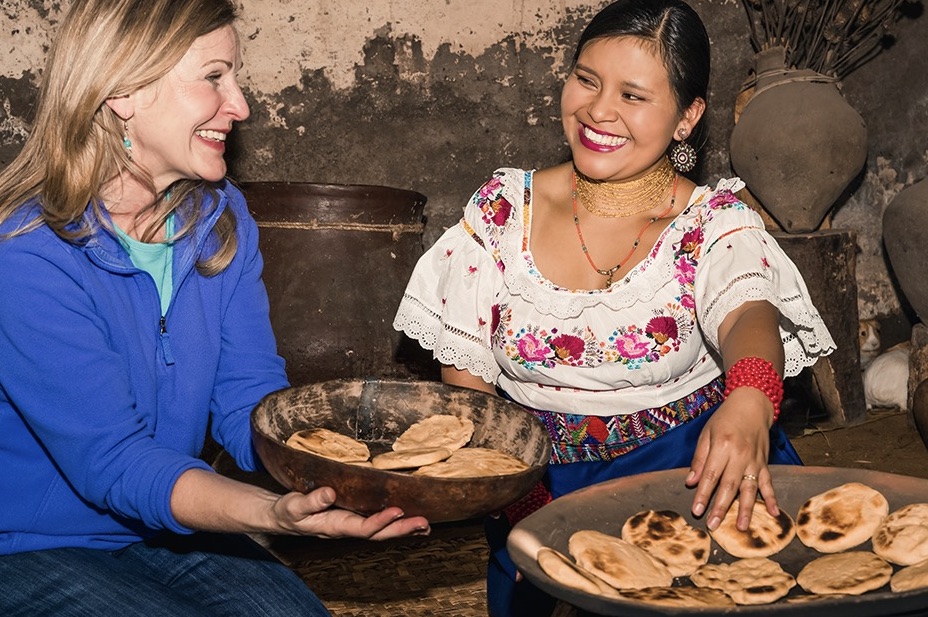 |
|
|
|
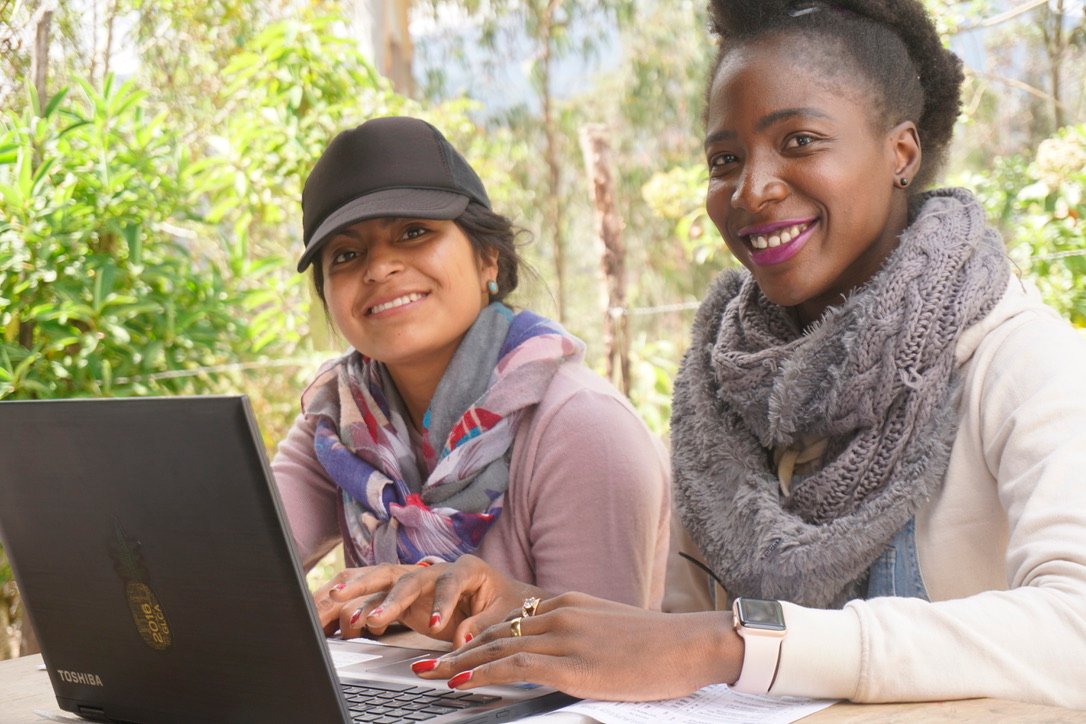

The Tandana Foundation offers remote student exchange experiences for your class. Even if you can’t travel, your students can interact in multiple ways with Ecuadorian peers, as they learn from each other and build global understanding. Your students can practice their Spanish and help their Ecuadorian peers practice English. They can learn about daily life and many aspects of Kichwa Otavalo culture, in addition to reflecting on their own daily lives and culture as they share with others. They can compare social issues in their own community with those in a rural Ecuadorian community. They can even do a joint research, creative, or fundraising project. Our goal is to foster mutual sharing based on equitable relationships. Joint student sessions can be integrated into your course periodically over a semester or more frequently for a week or two. Students can also communicate by WhatsApp in between Zoom sessions. Together, we can build global connection and awareness, even without travel. Contact us at info [at] tandanafoundation.org to make arrangements.
Suggested Donation:
If your institution is able, we ask you to support this program by making a donation to cover internet costs for the Ecuadorian students and administrative work for Tandana. Recommendation is $10-15 per Ecuadorian student per session.
Activities:
Meet and greet, with suggested questions and prompts
Sharing daily life and cultural activities
Agriculture
Cooking
Dress
School
Chores
Community layout and points of interest
Language practice and tutoring
Social issues, justice, and identity discussions
Joint research projects
Joint creative projects
Joint fundraising projects

